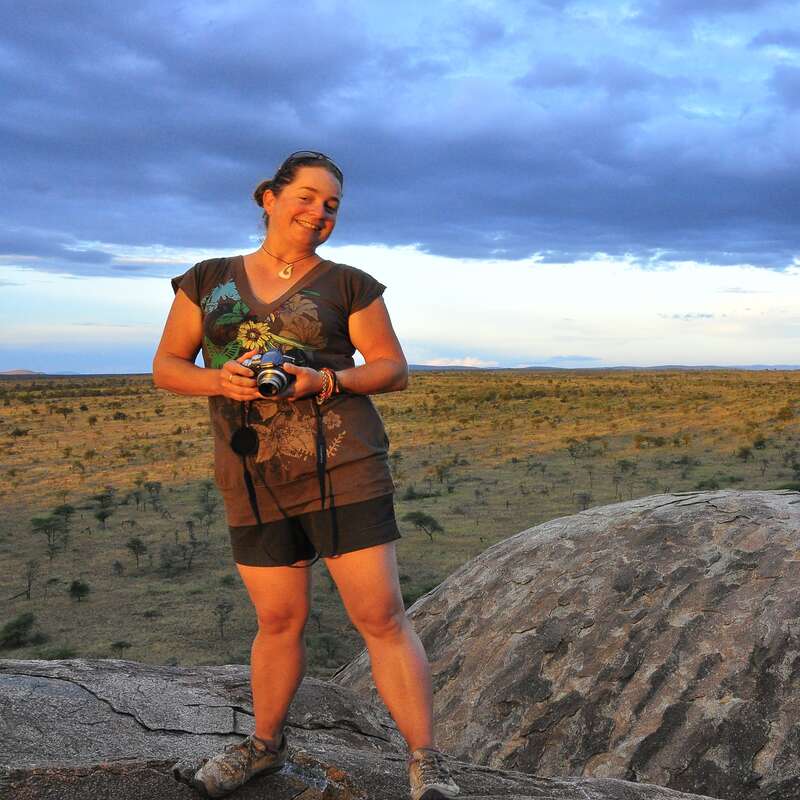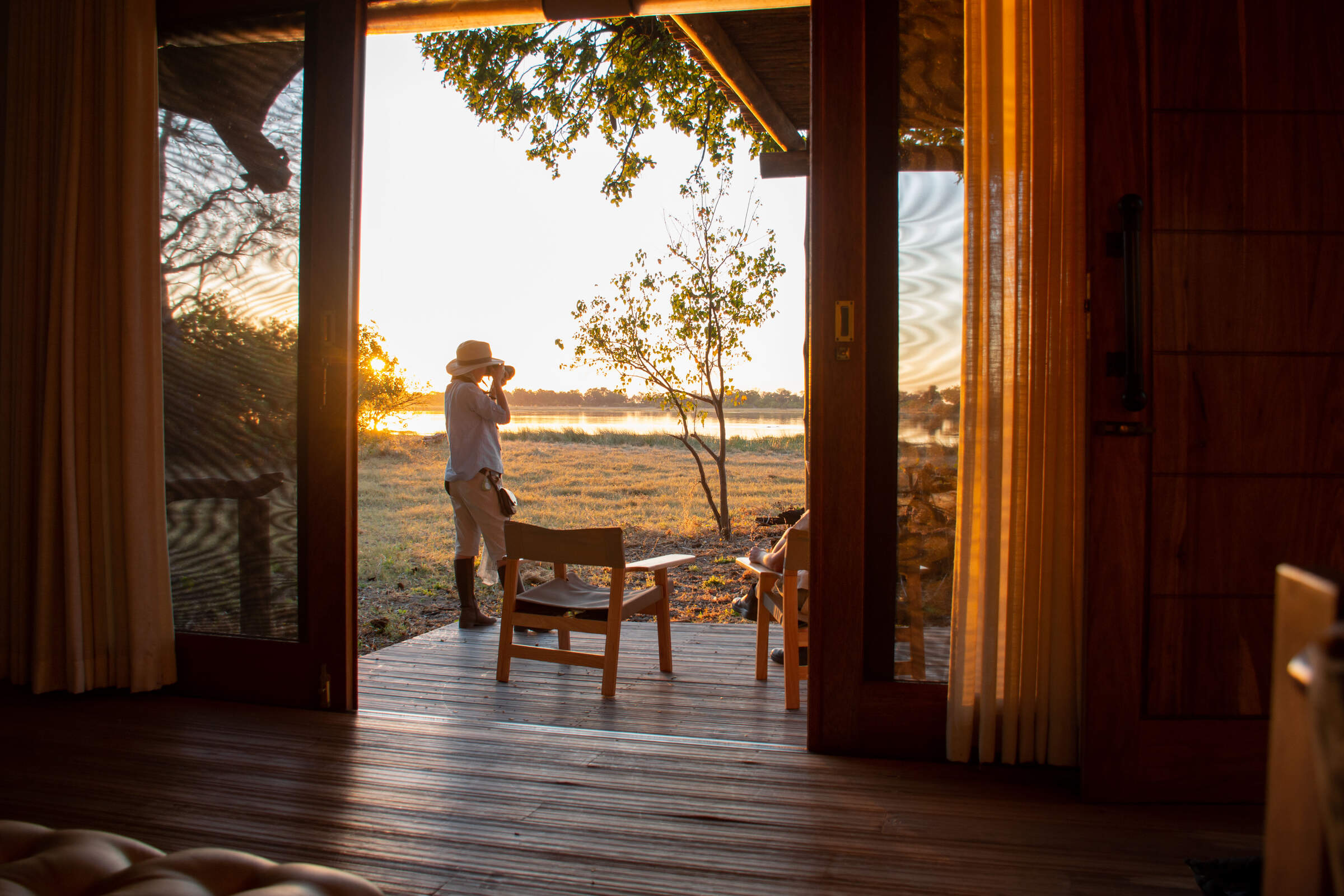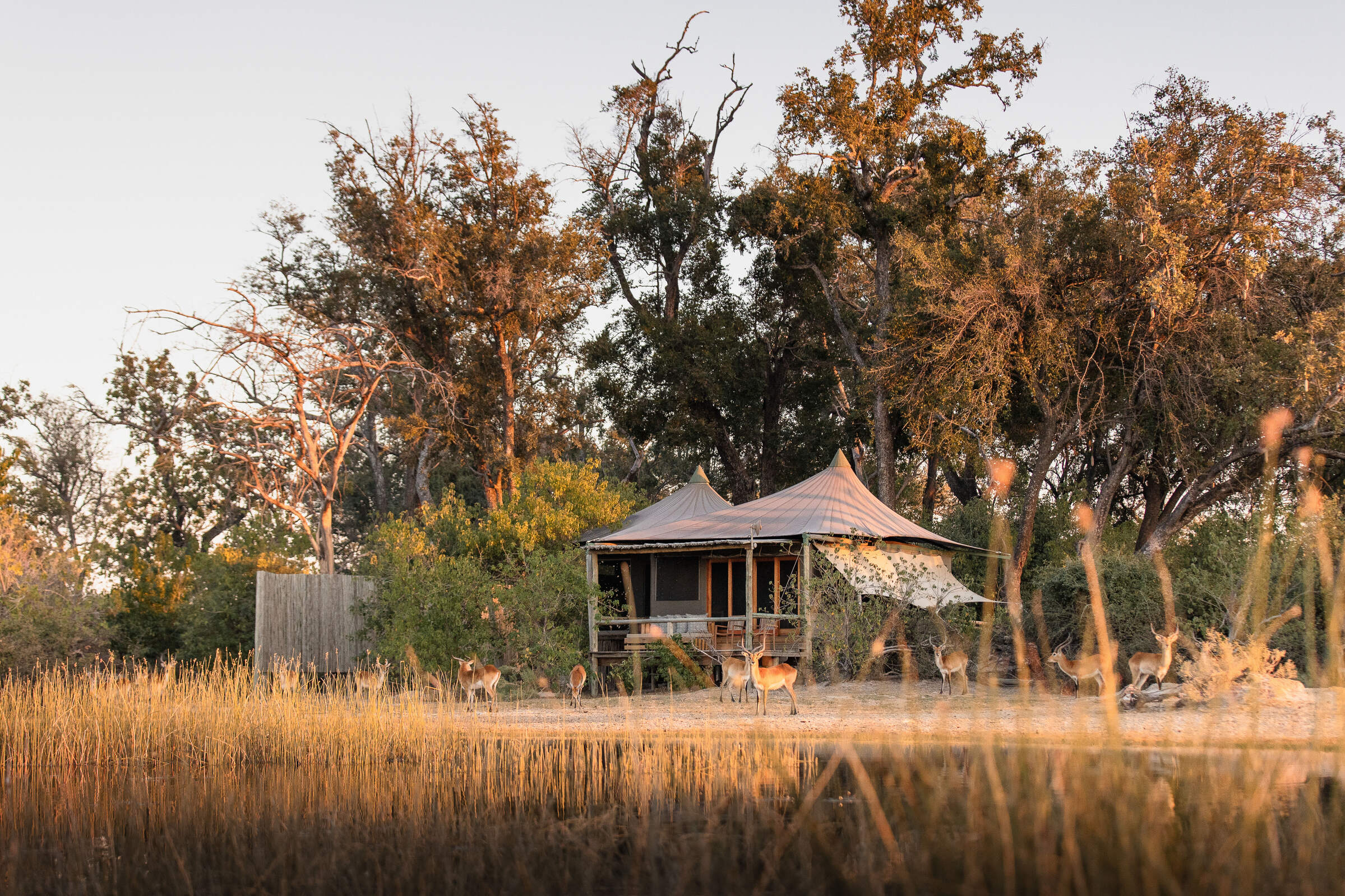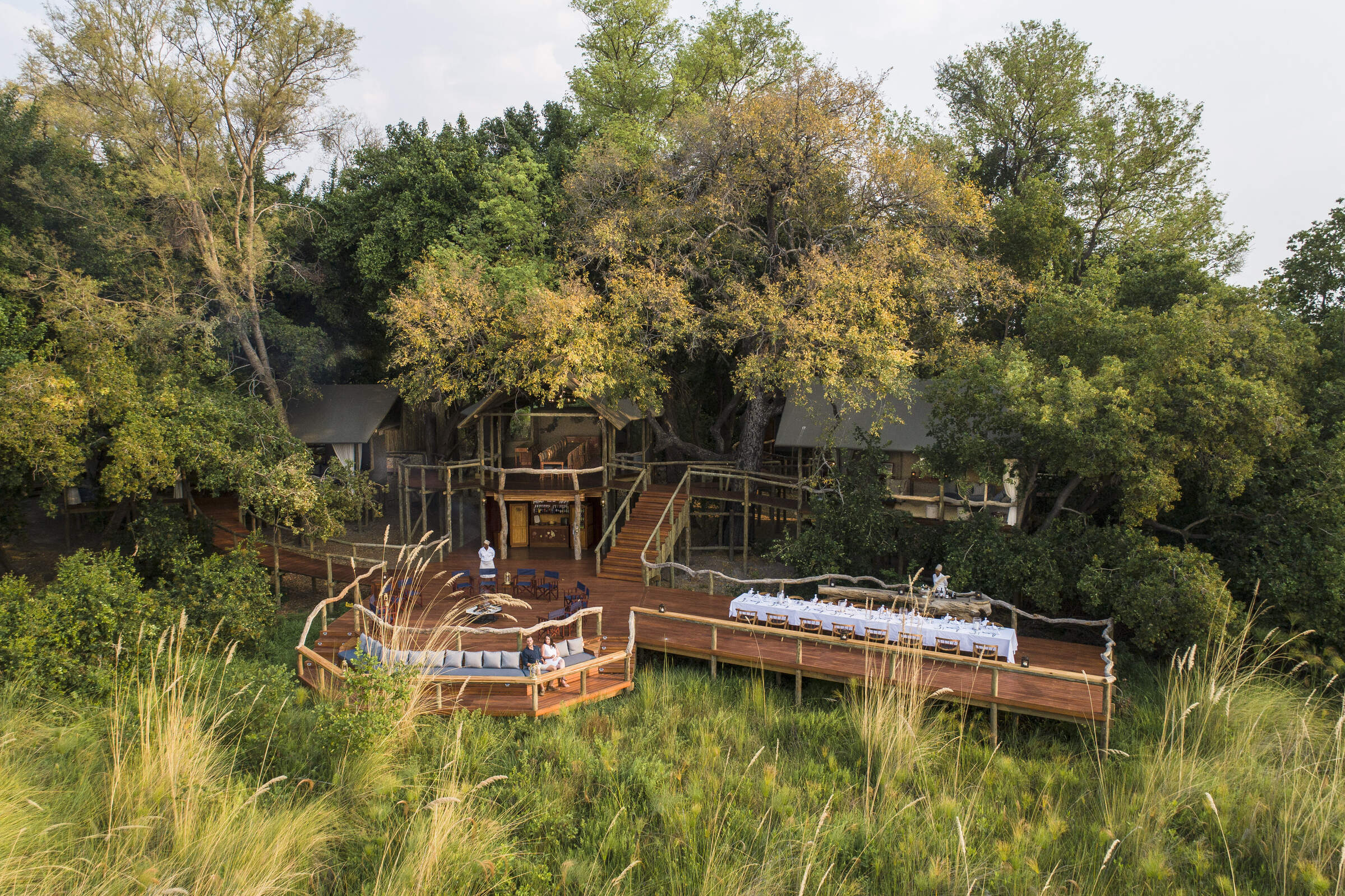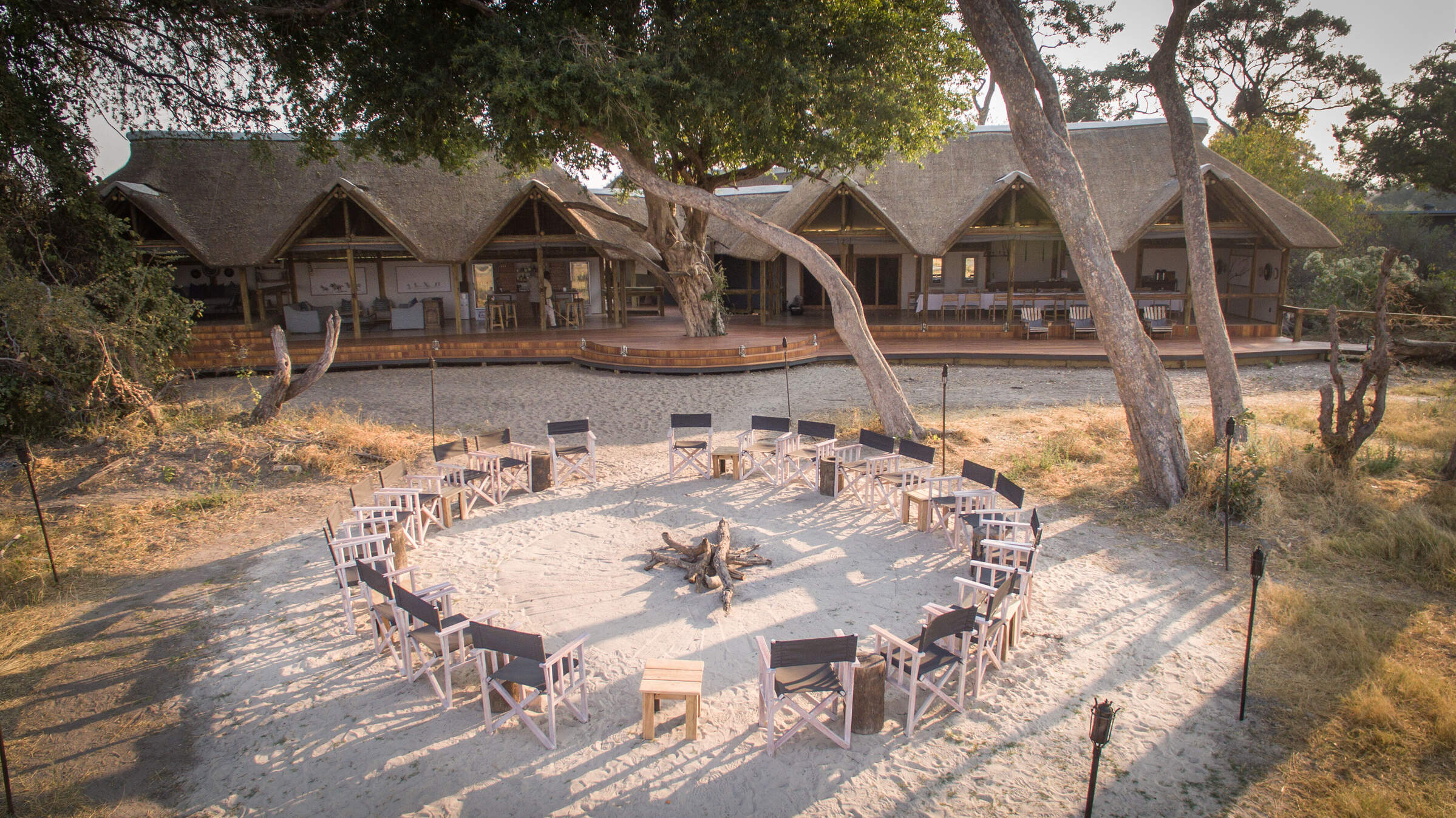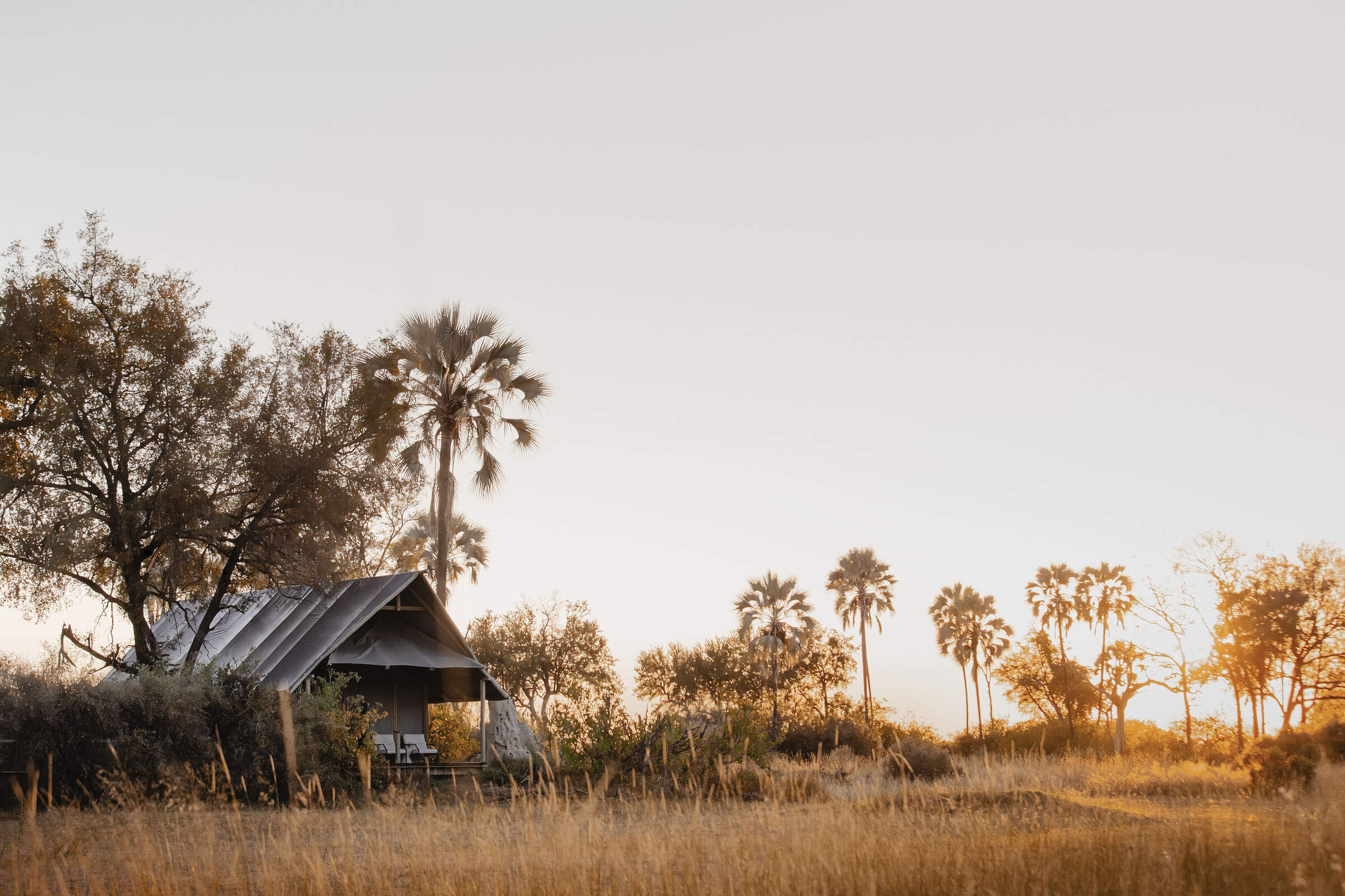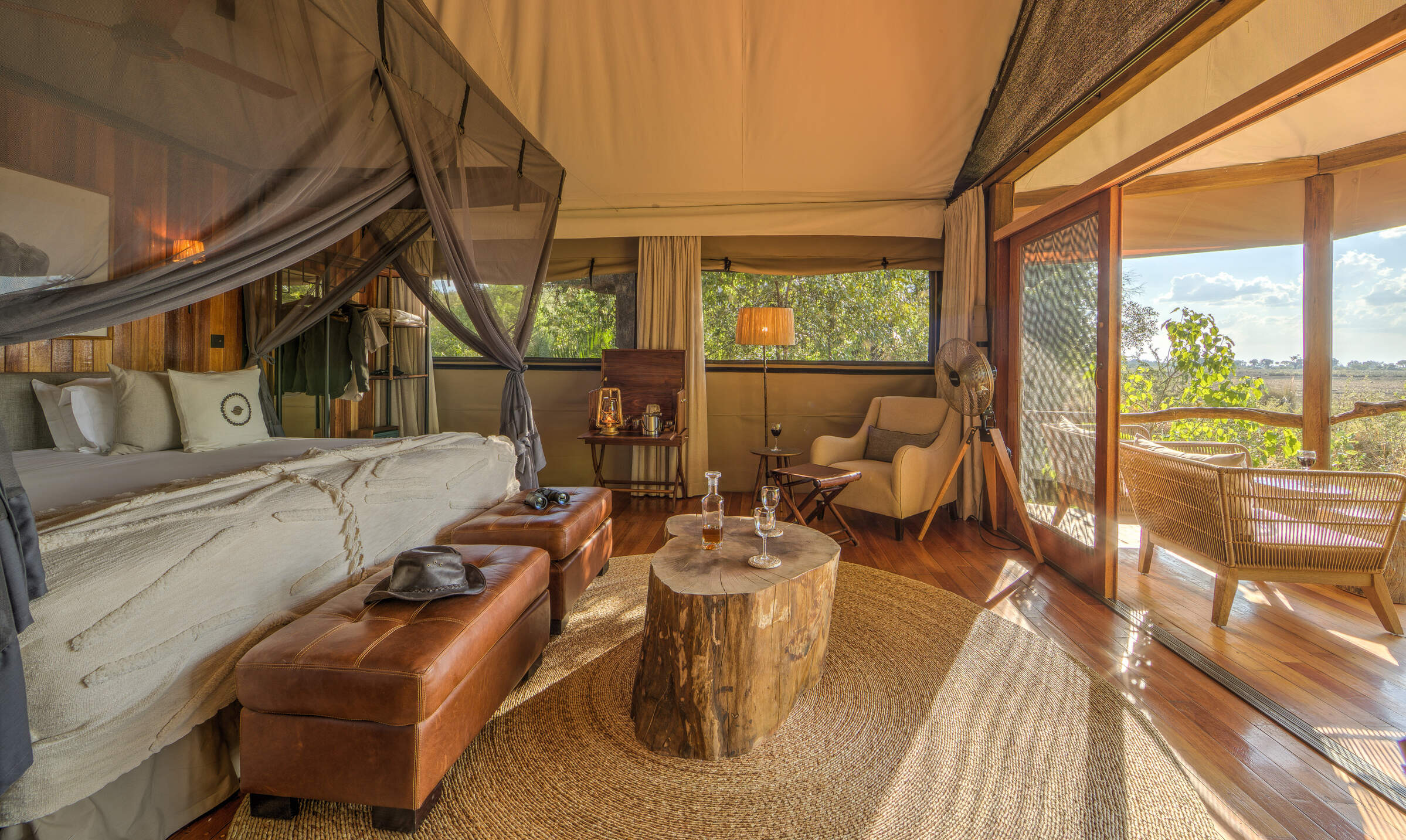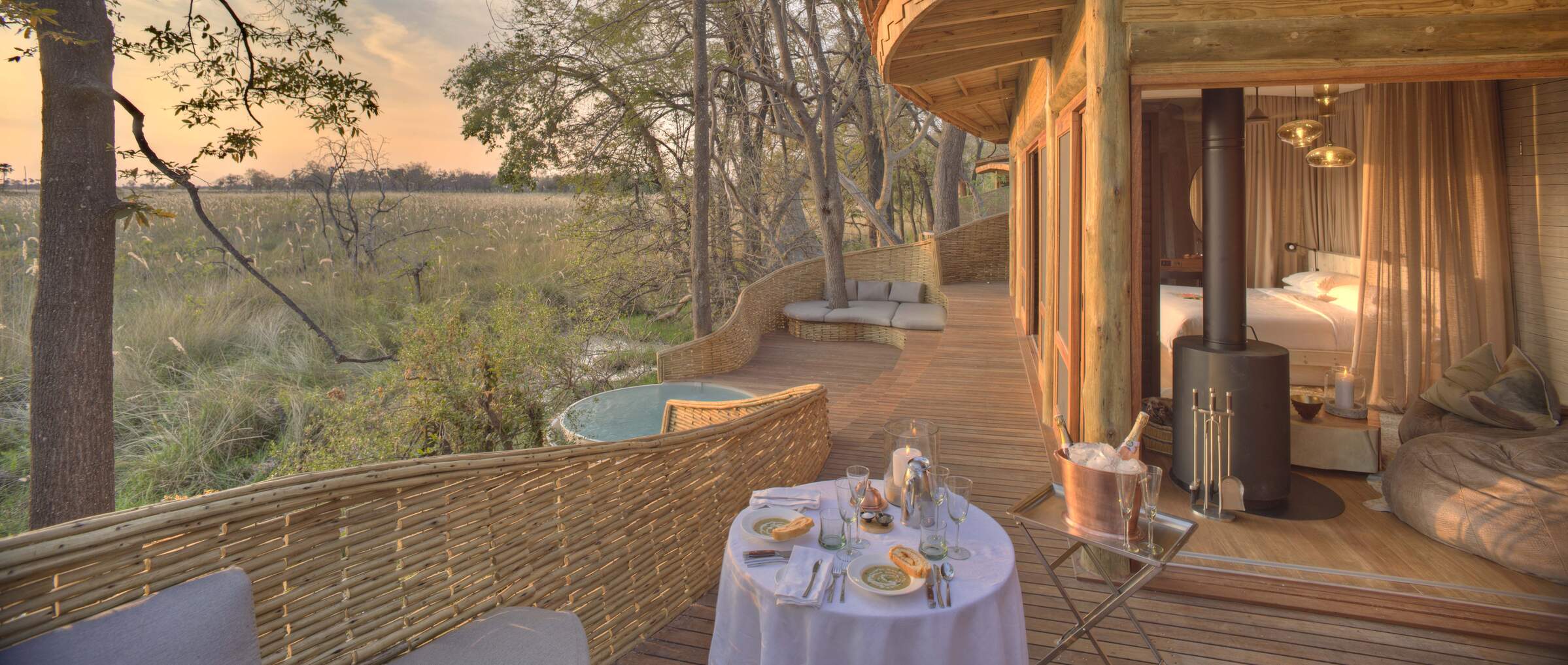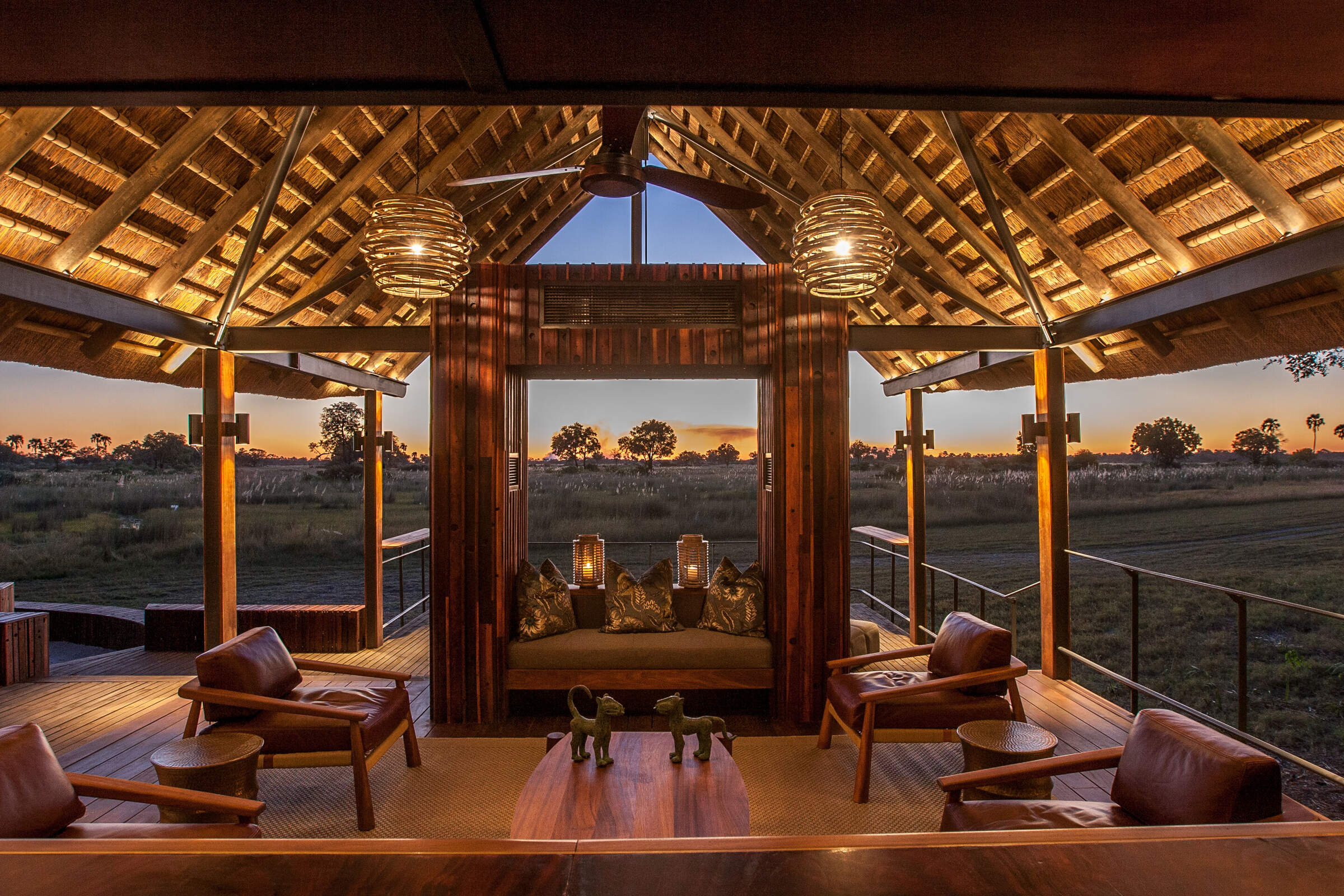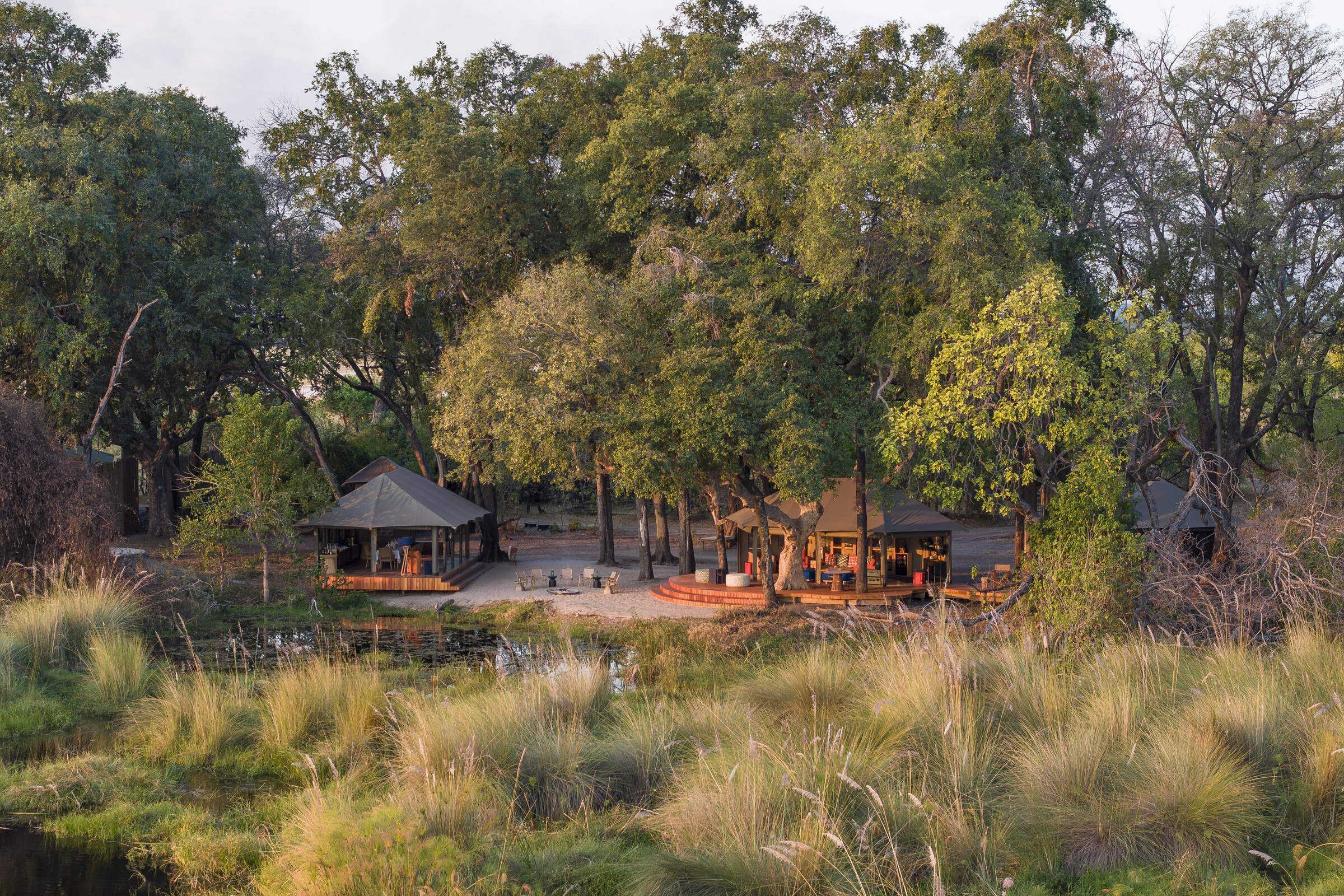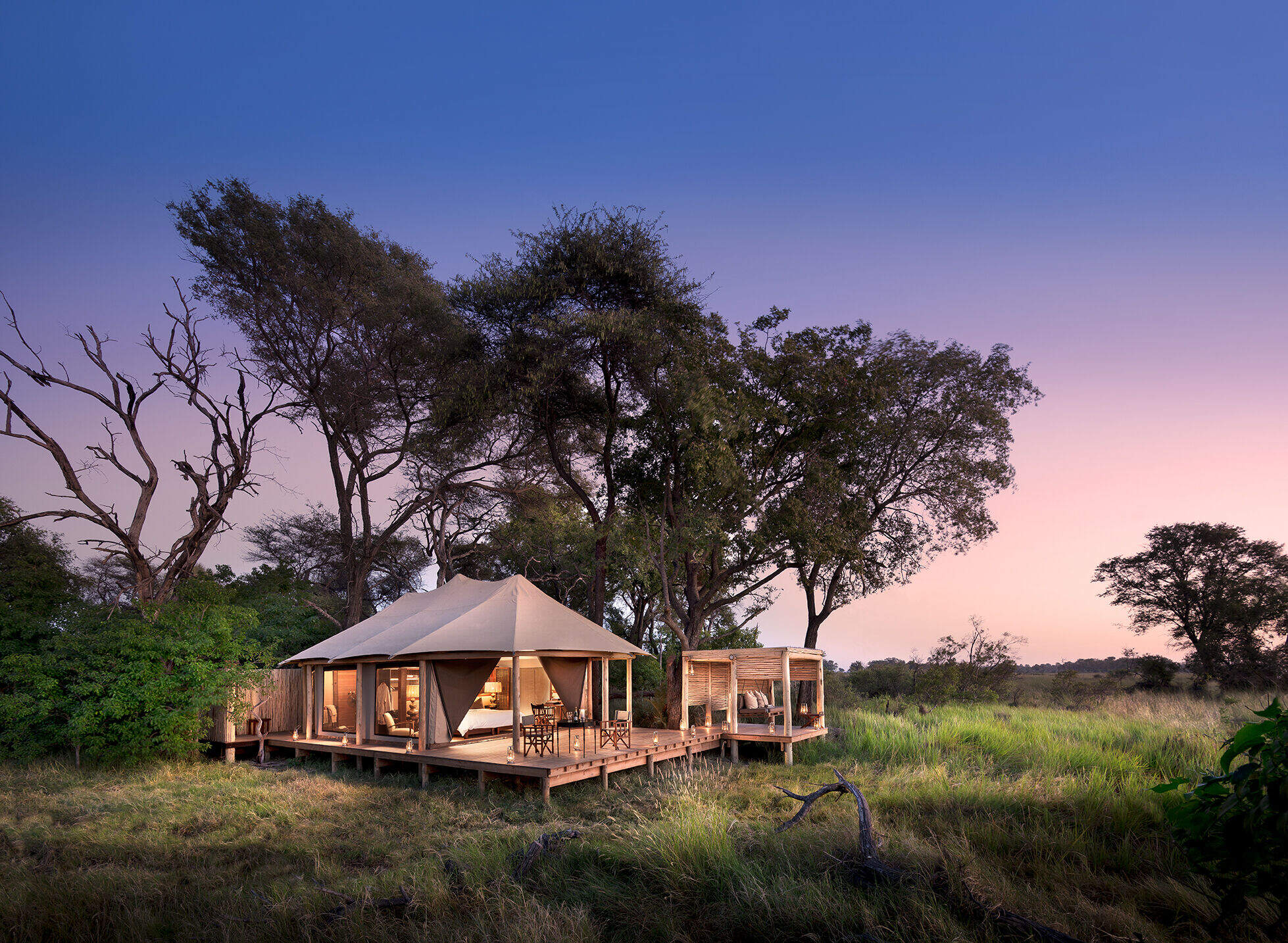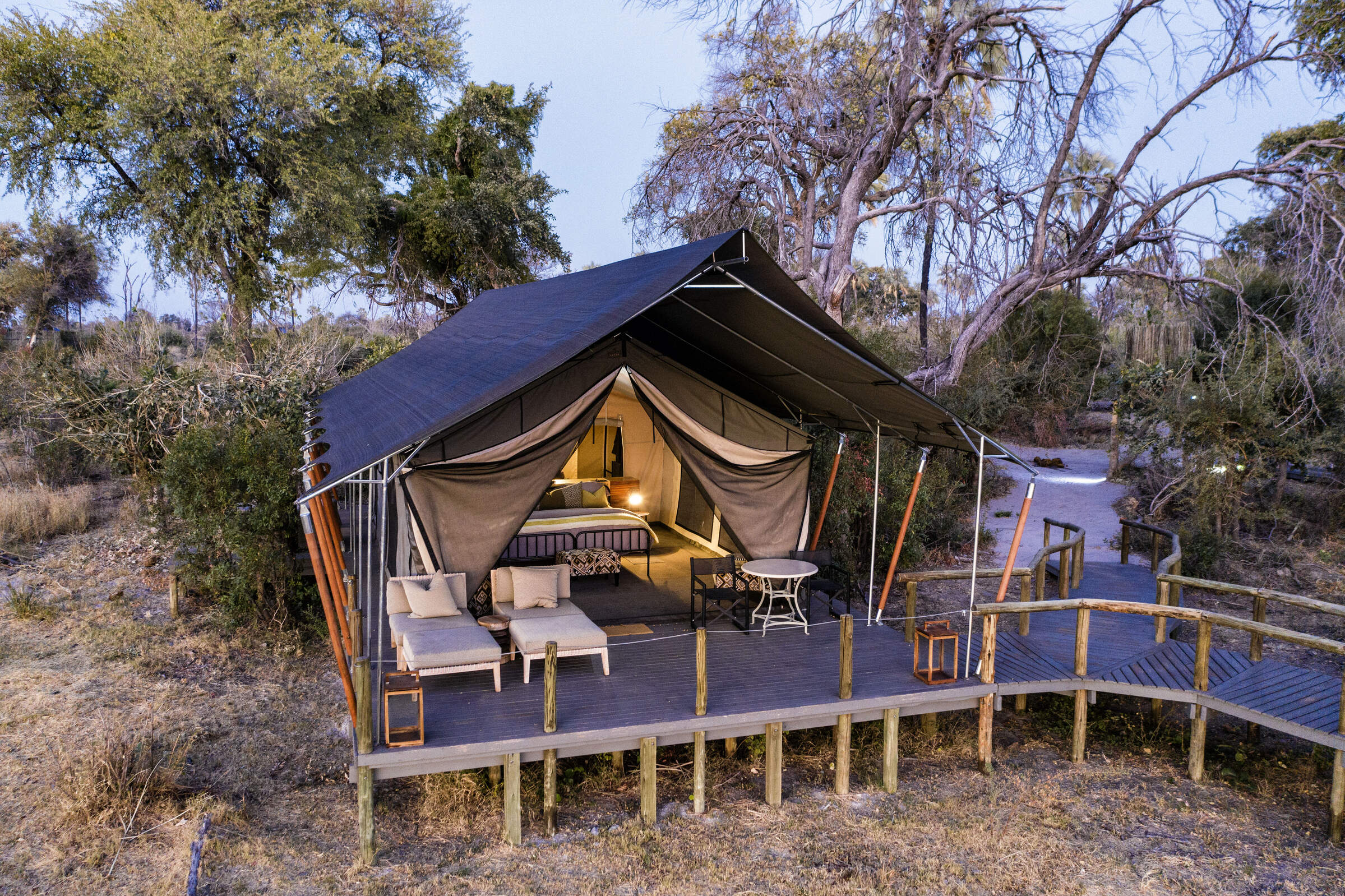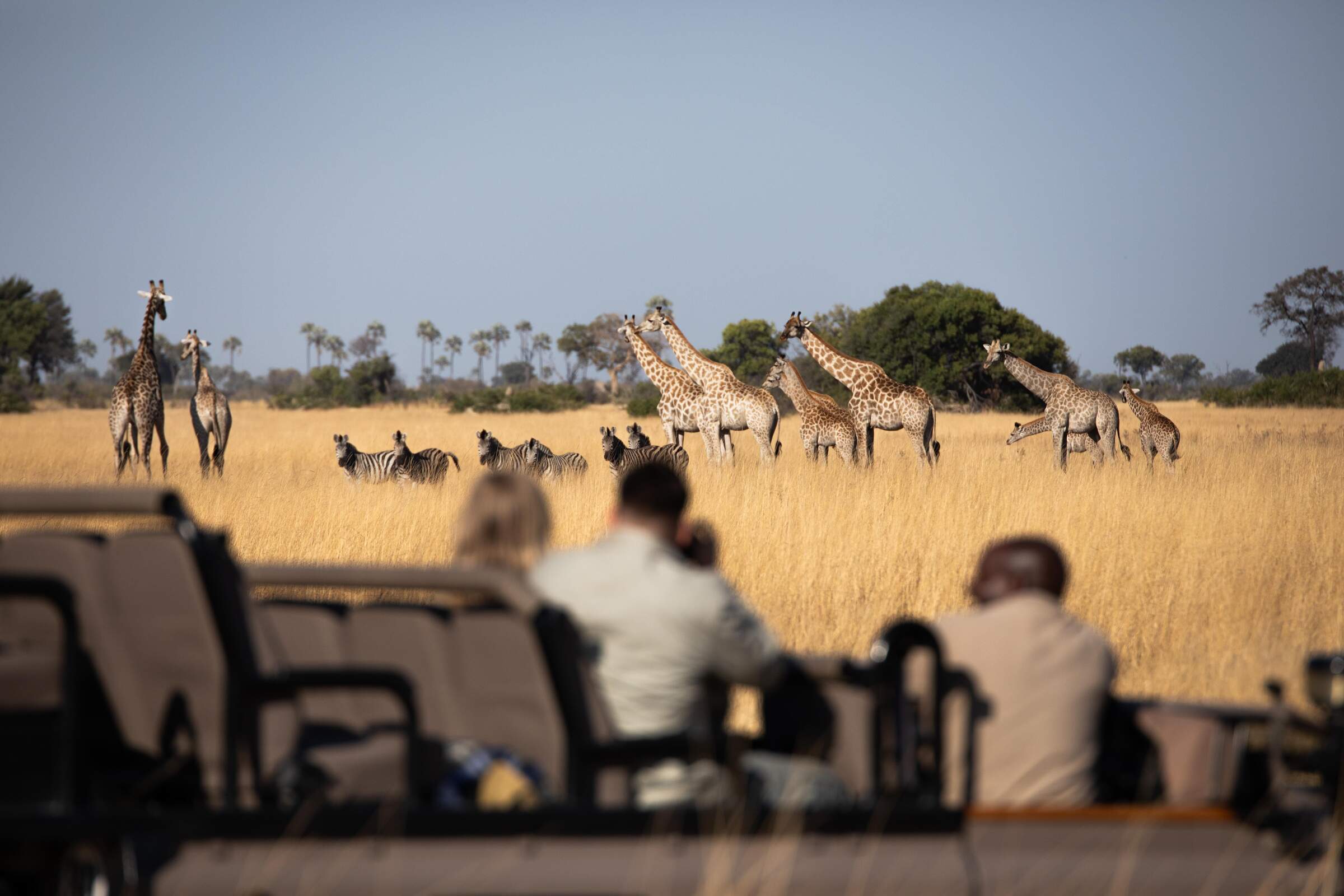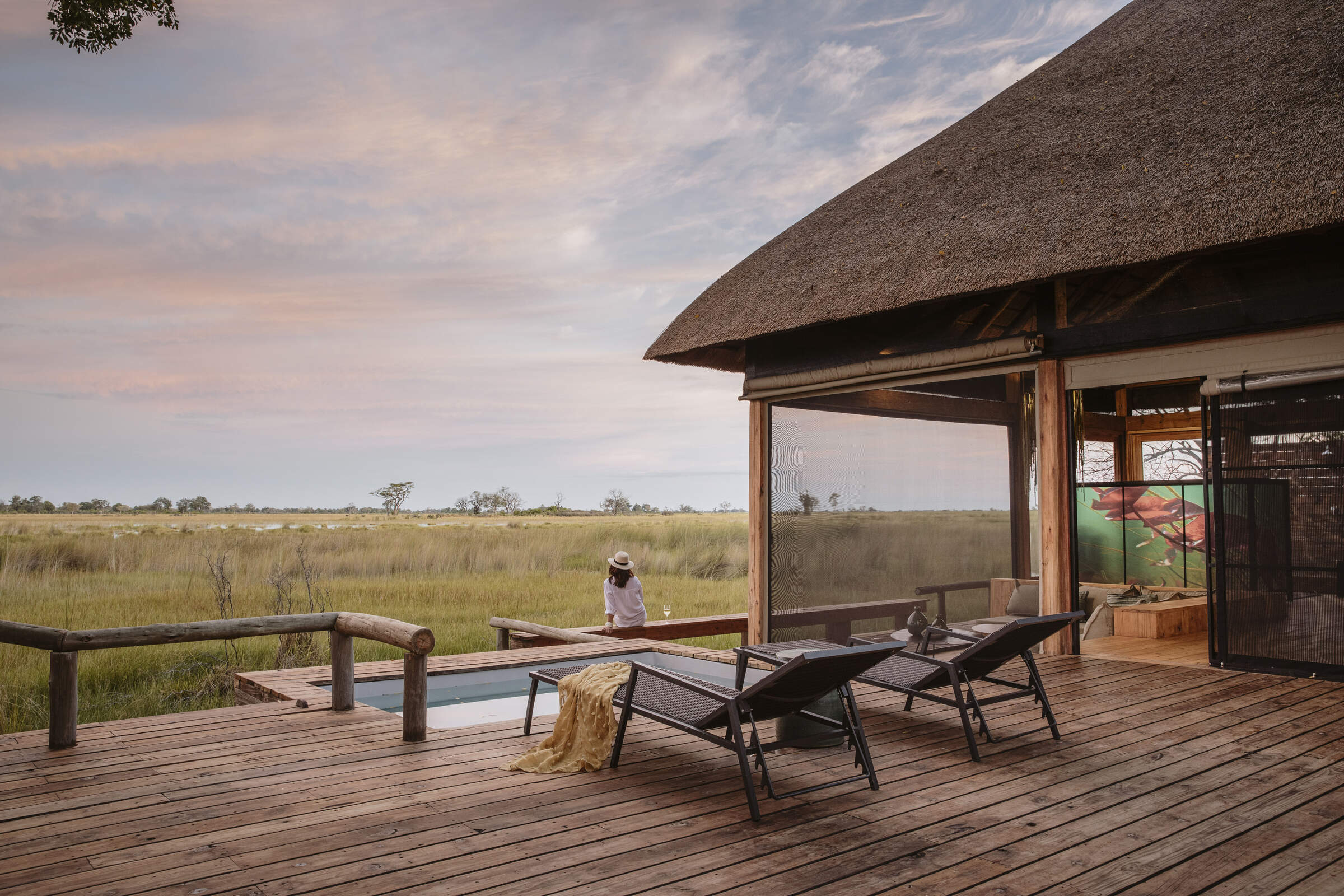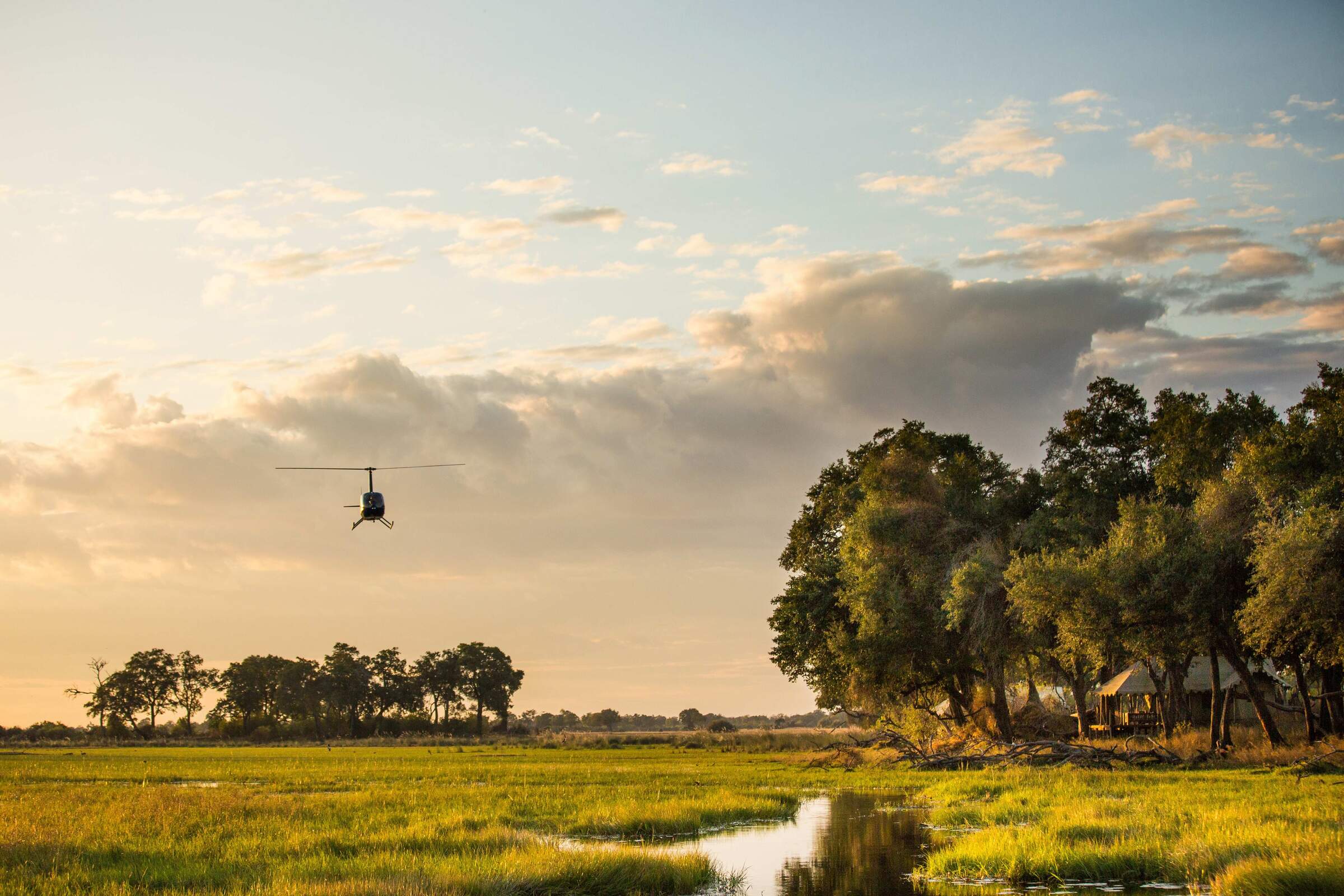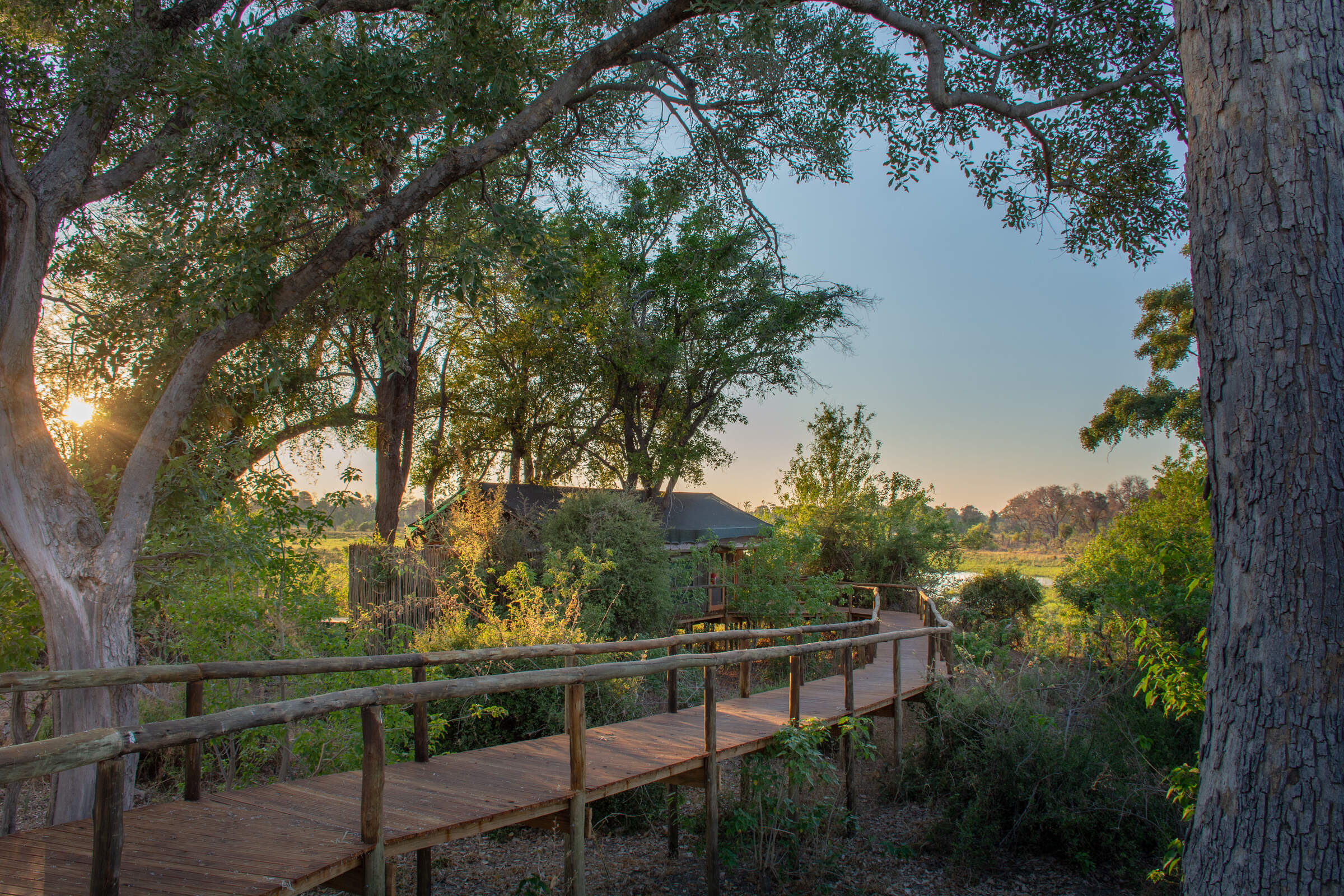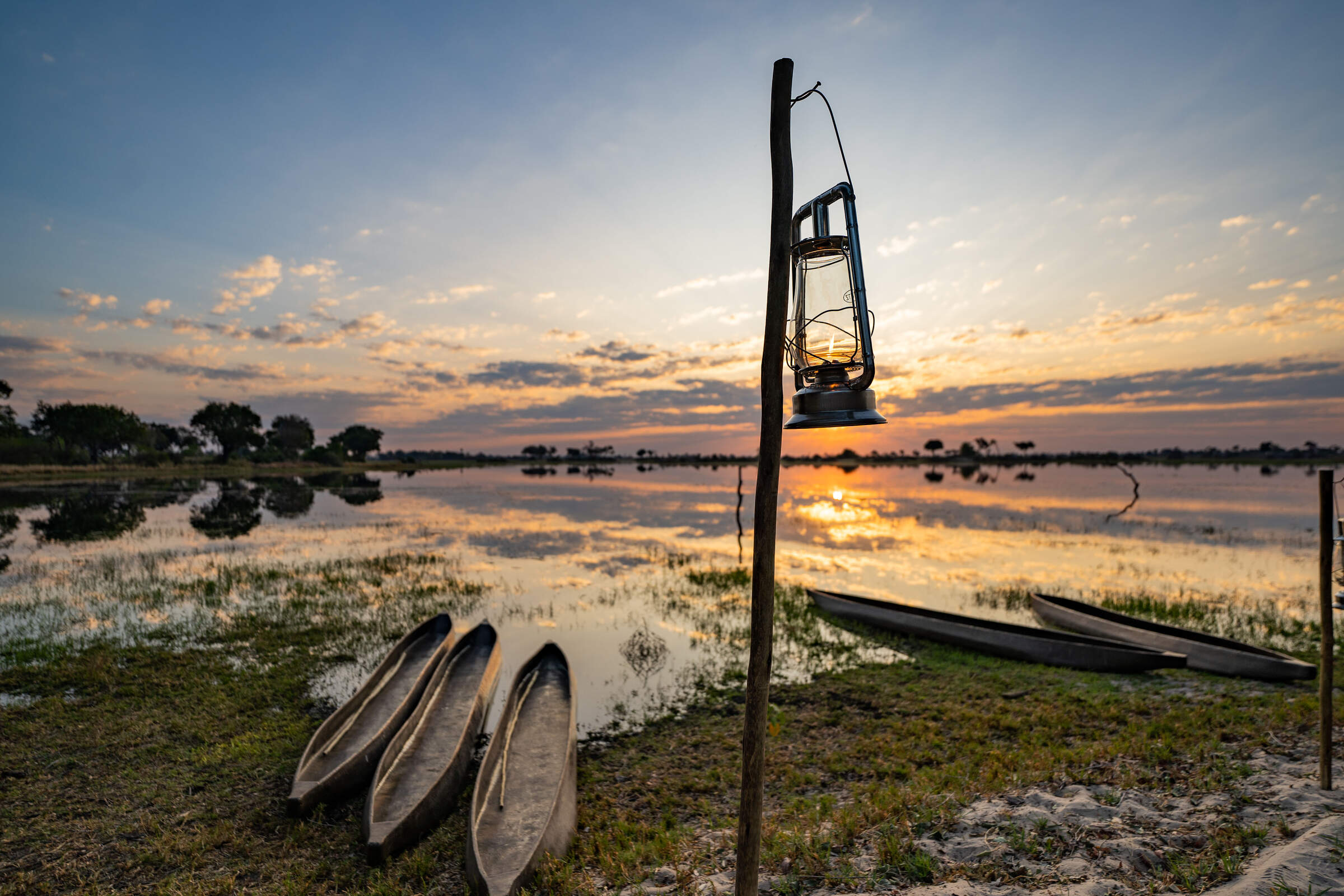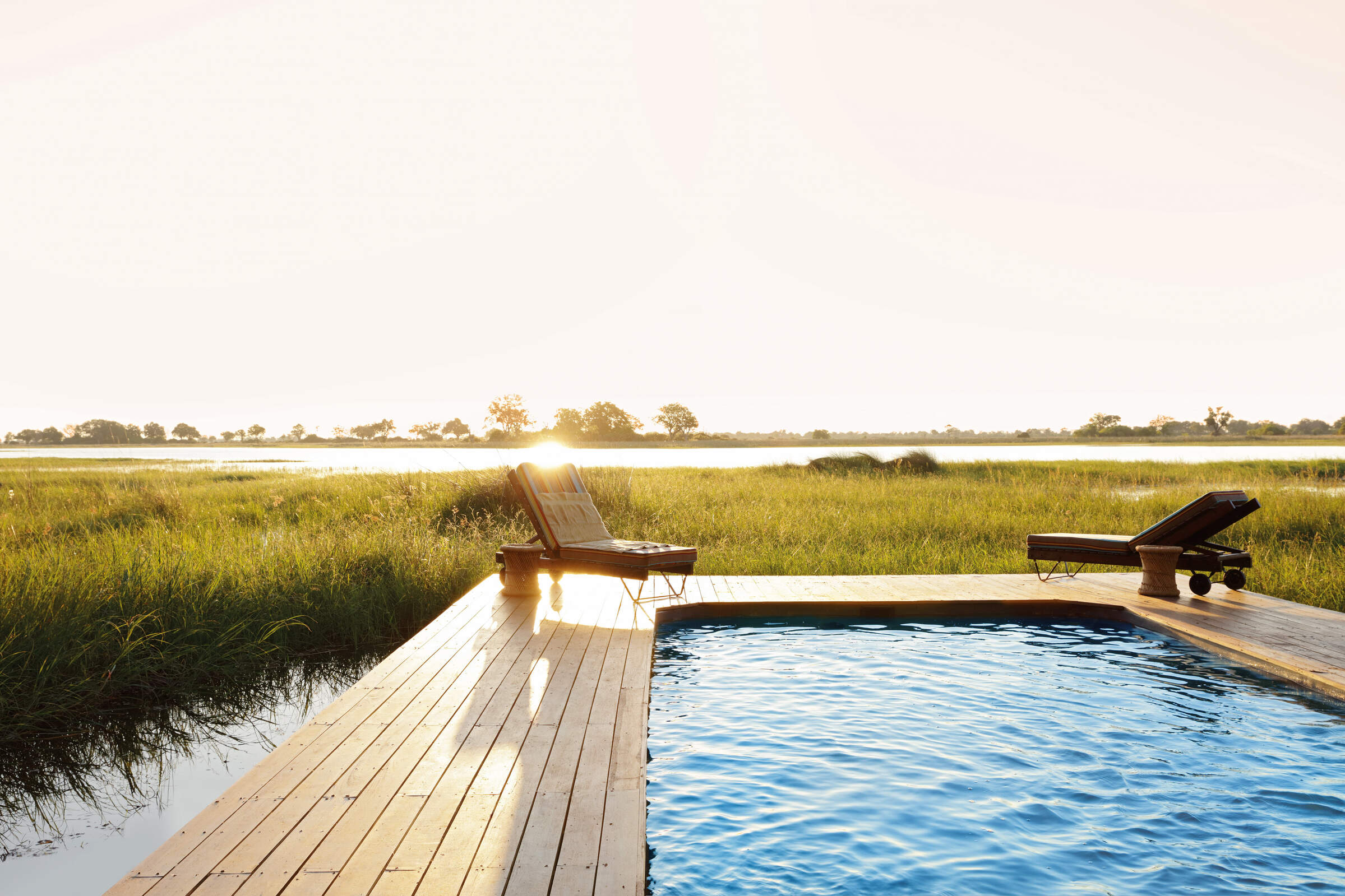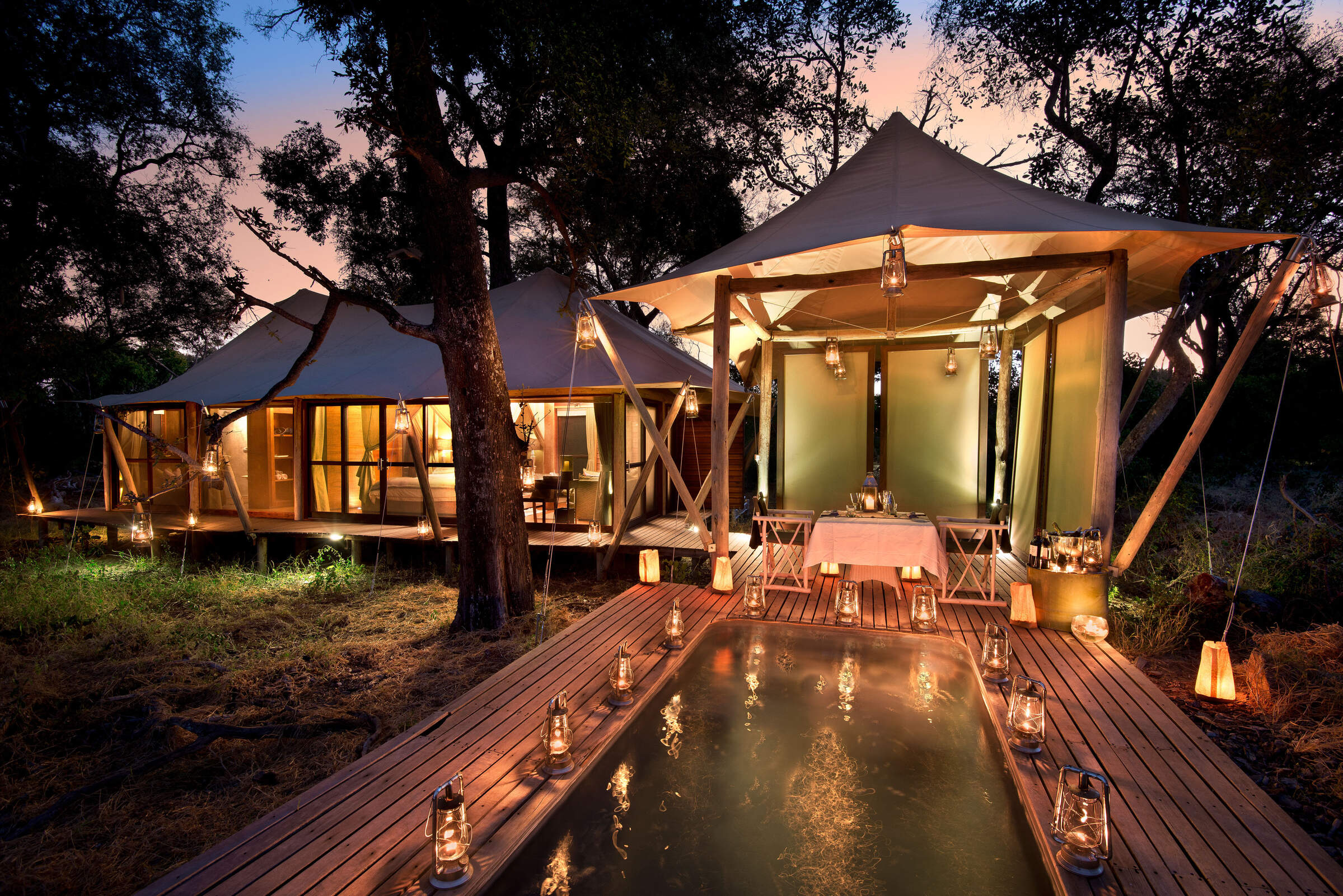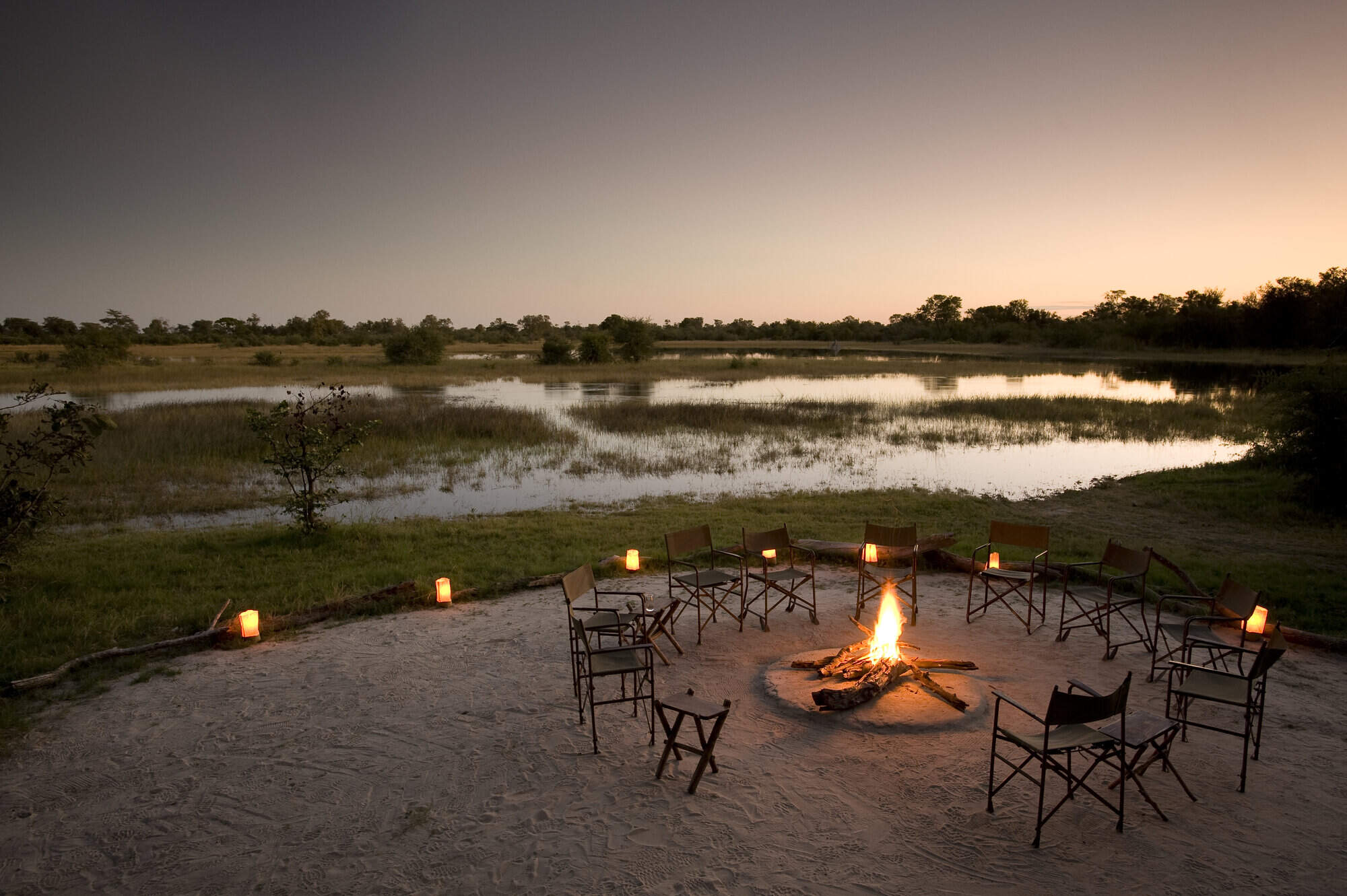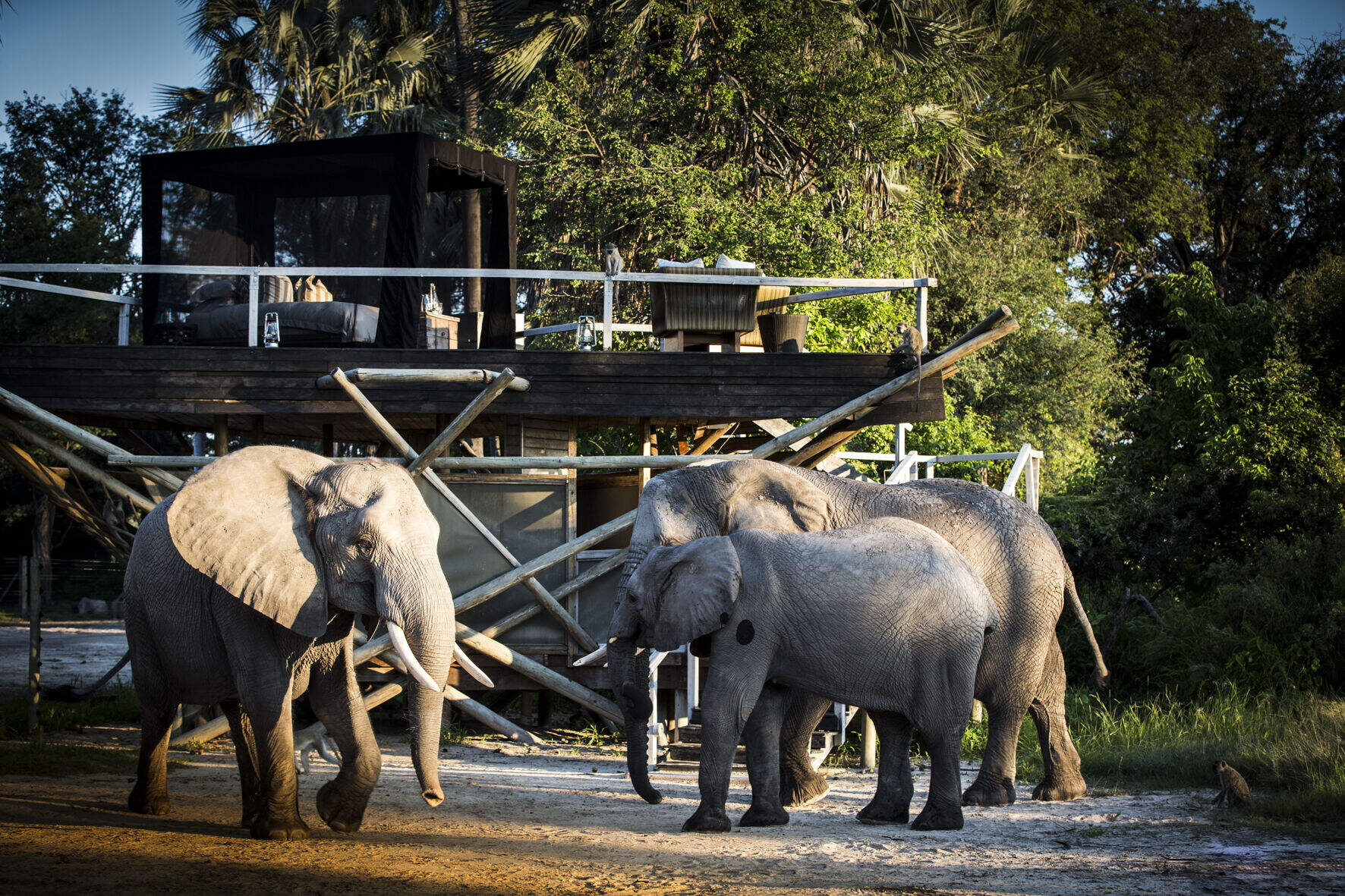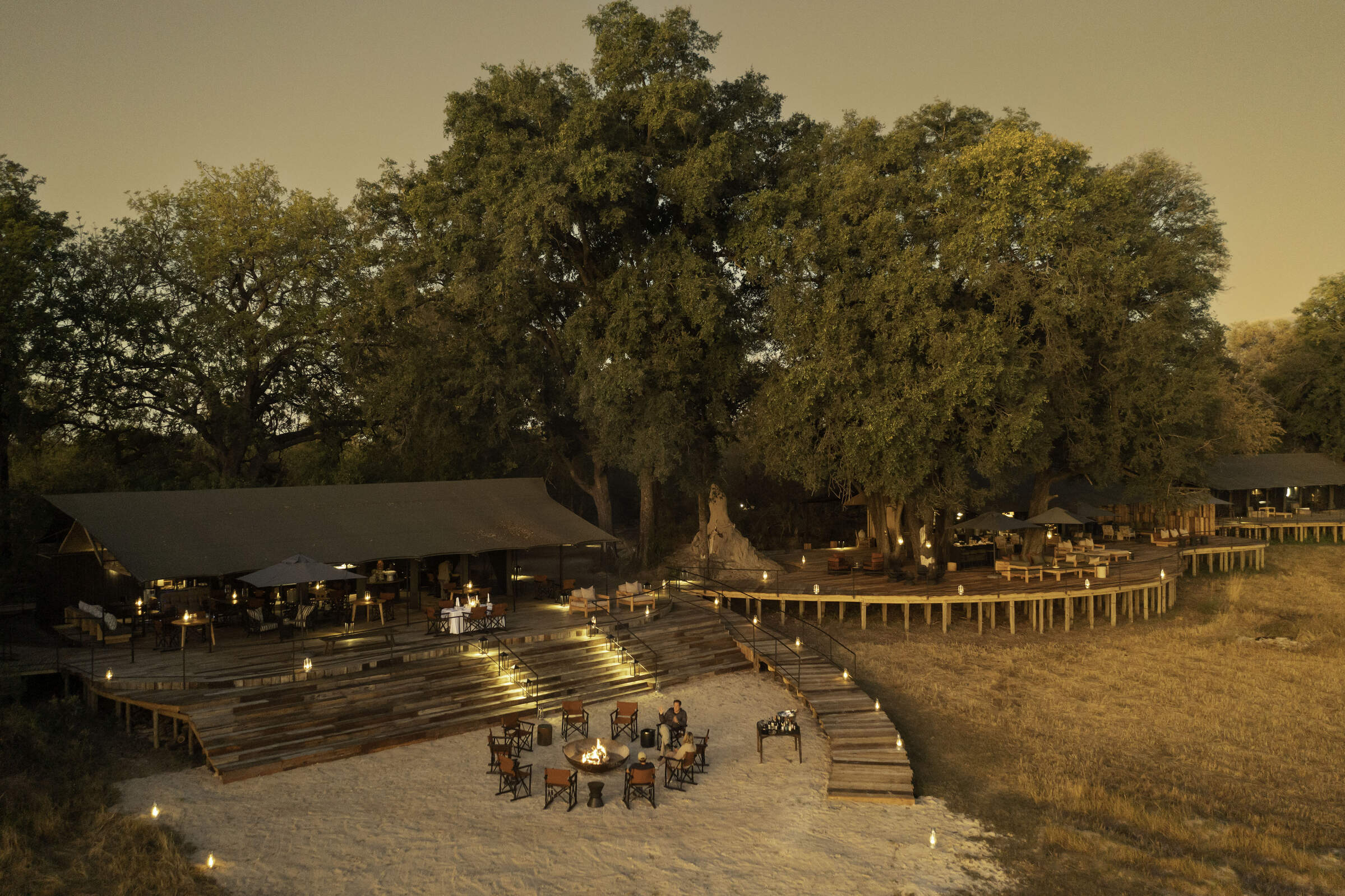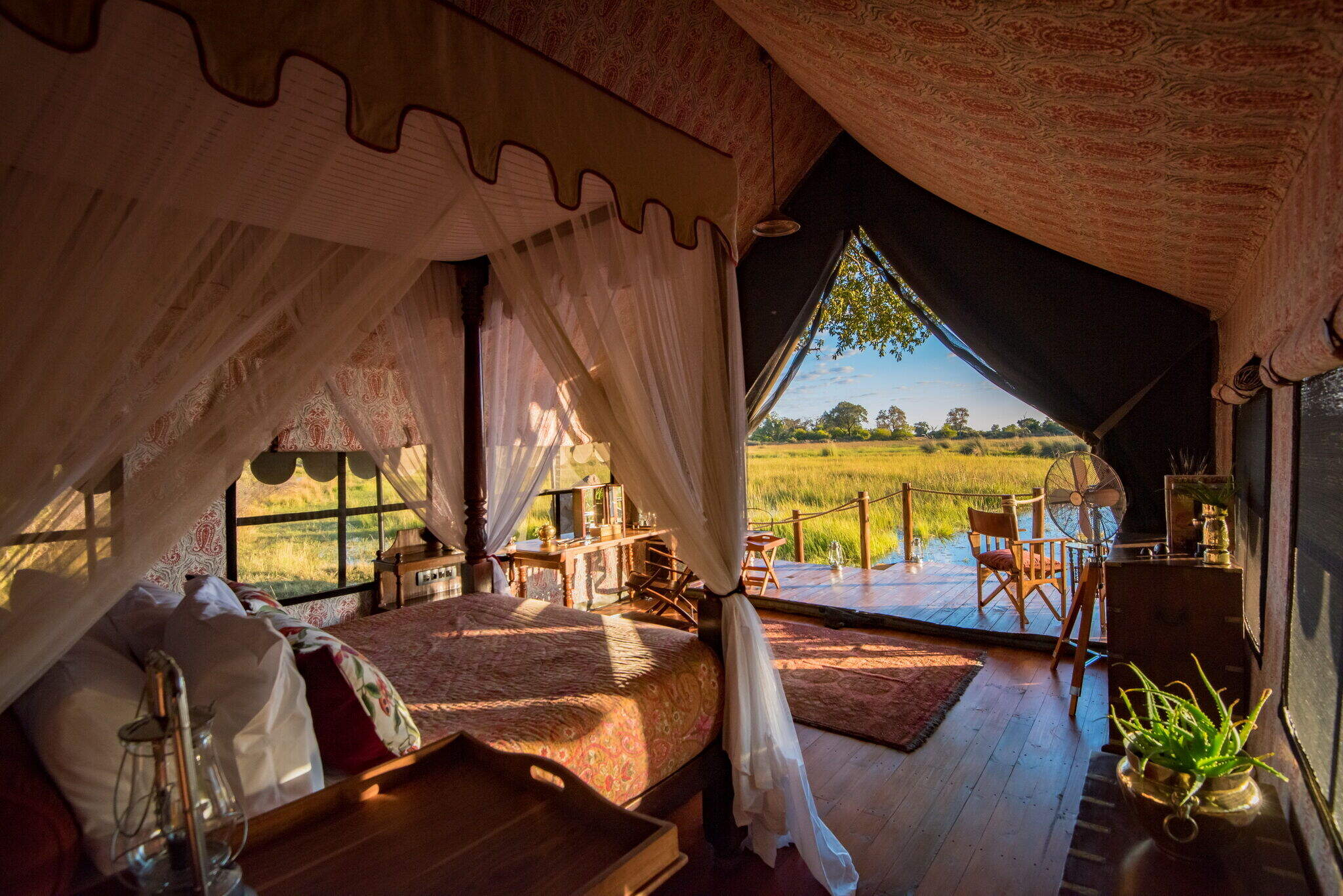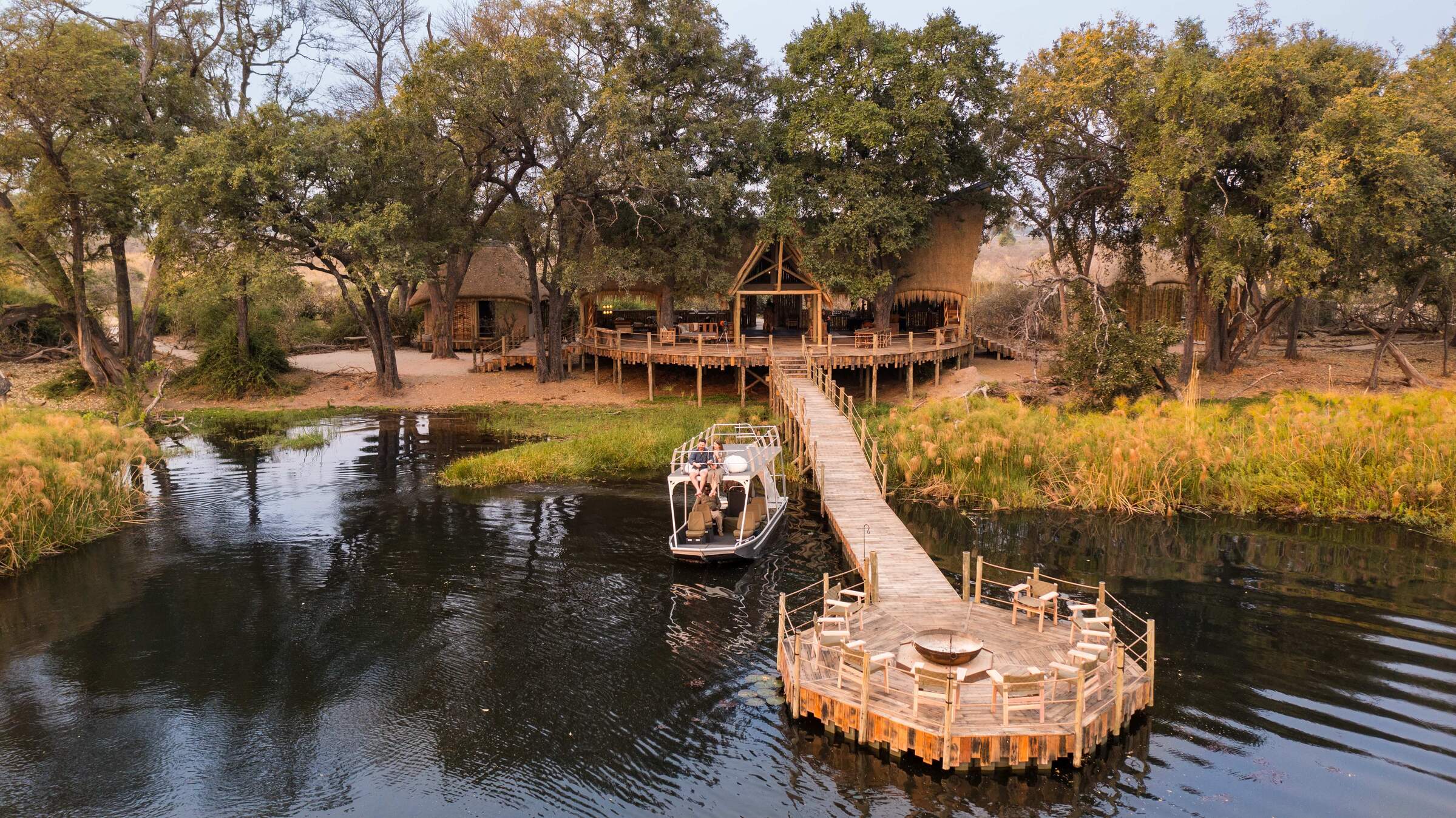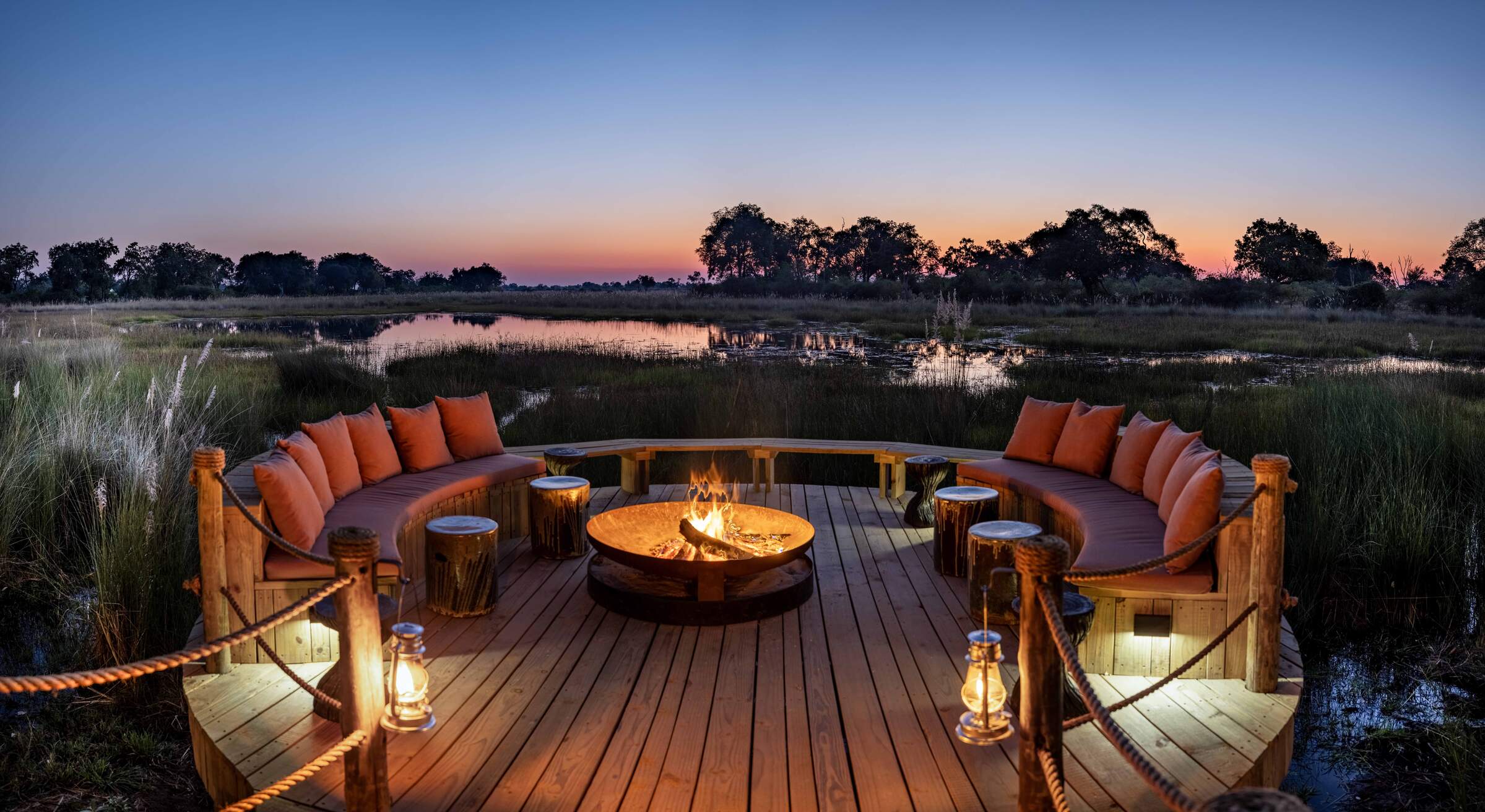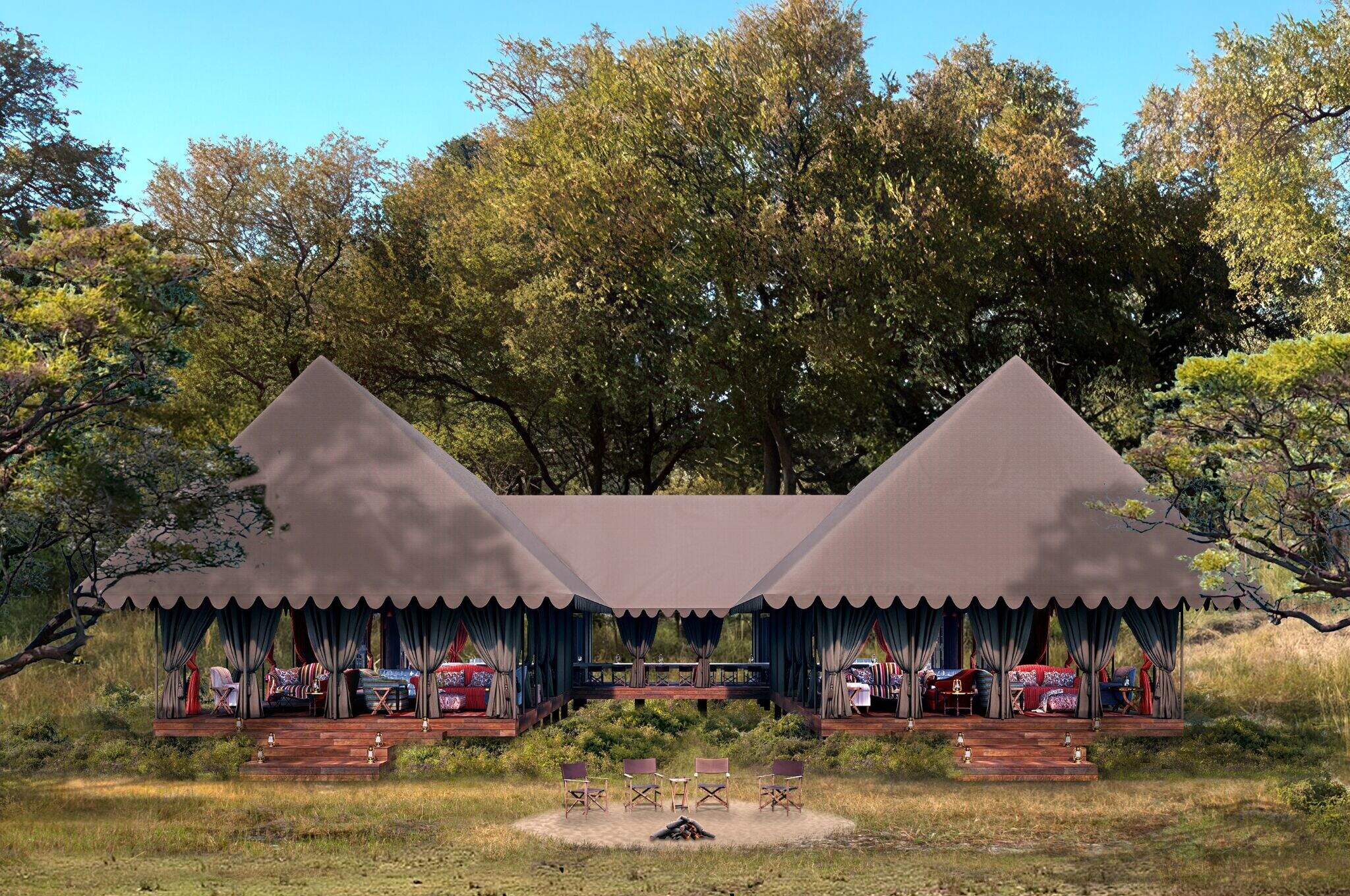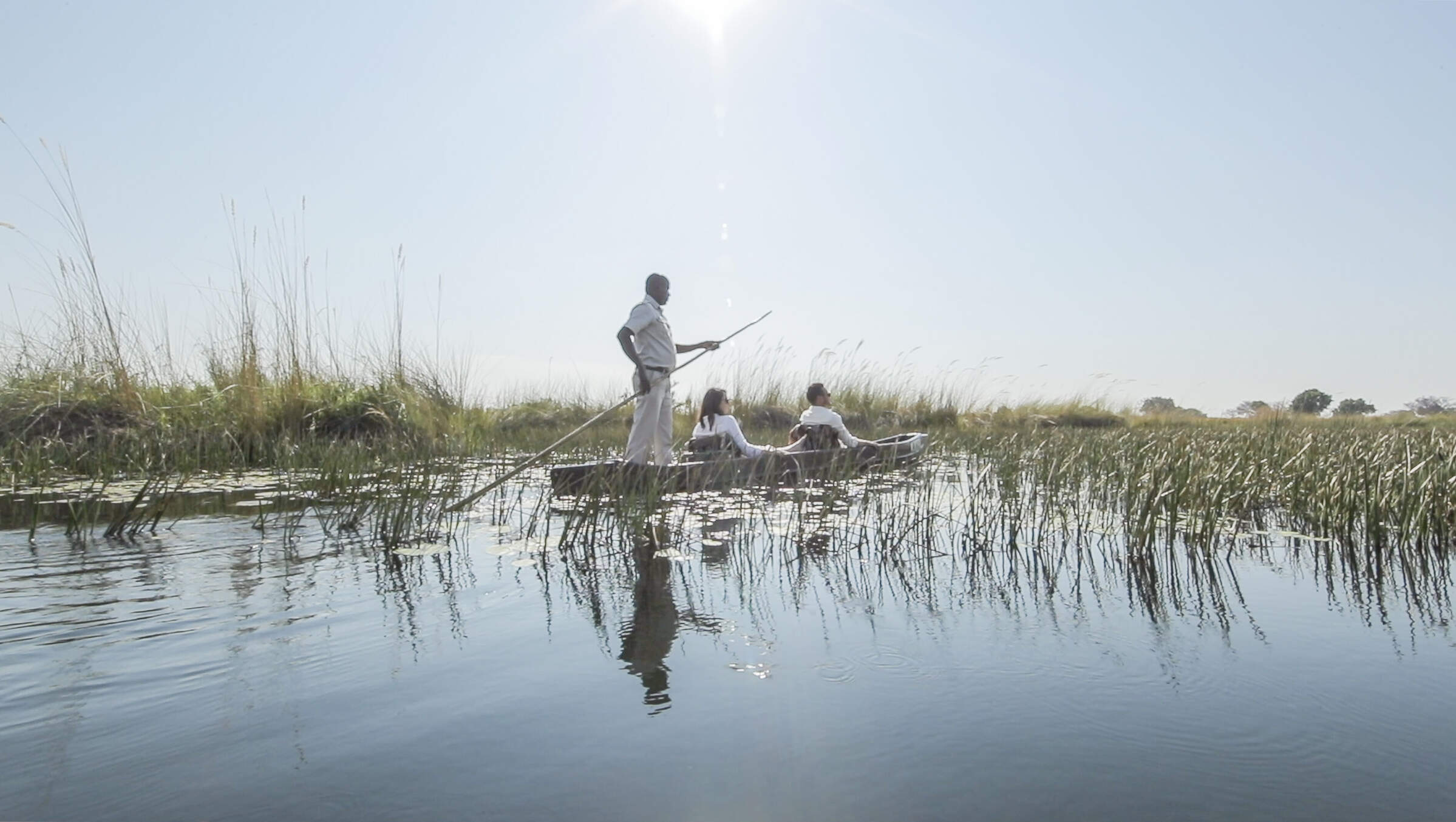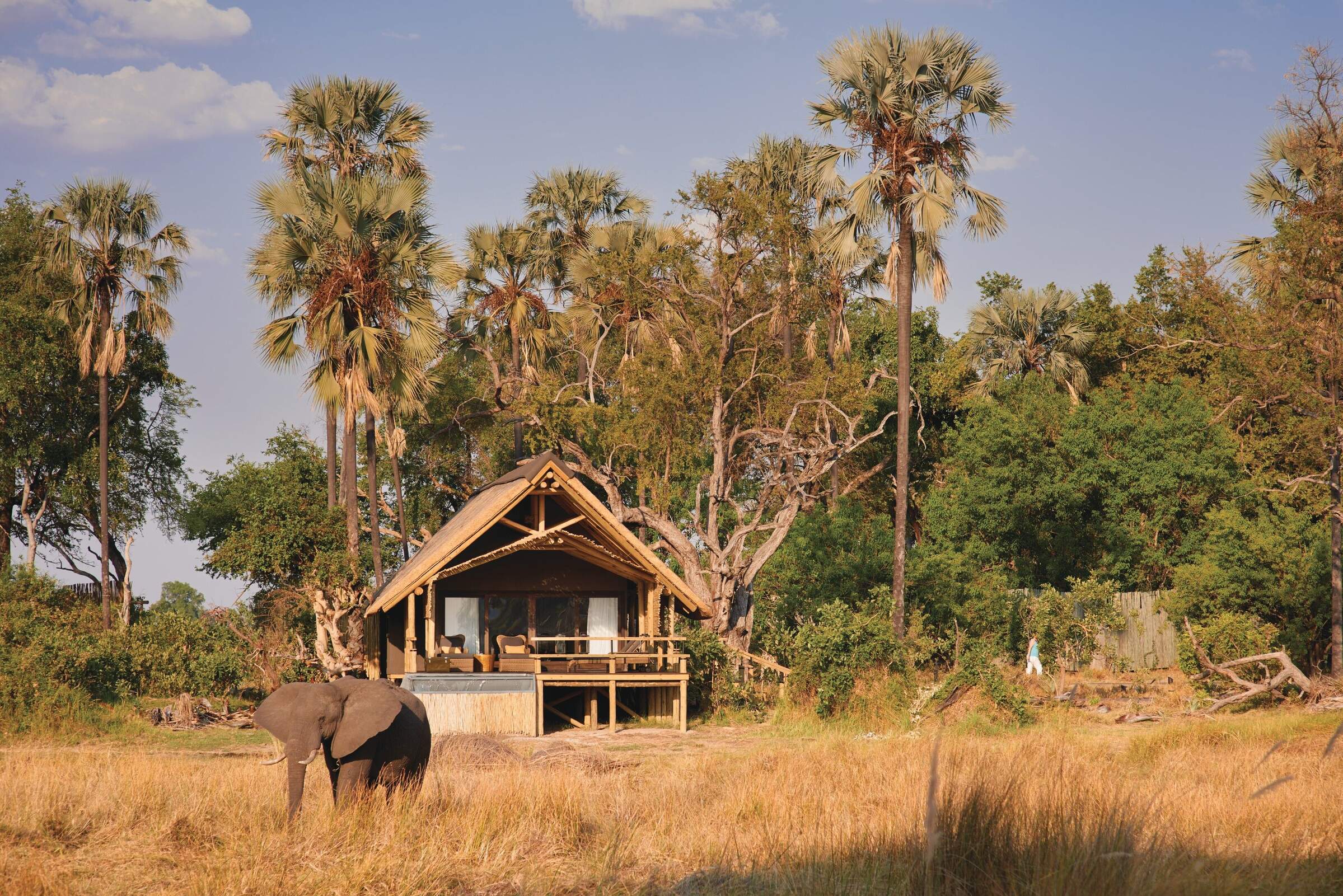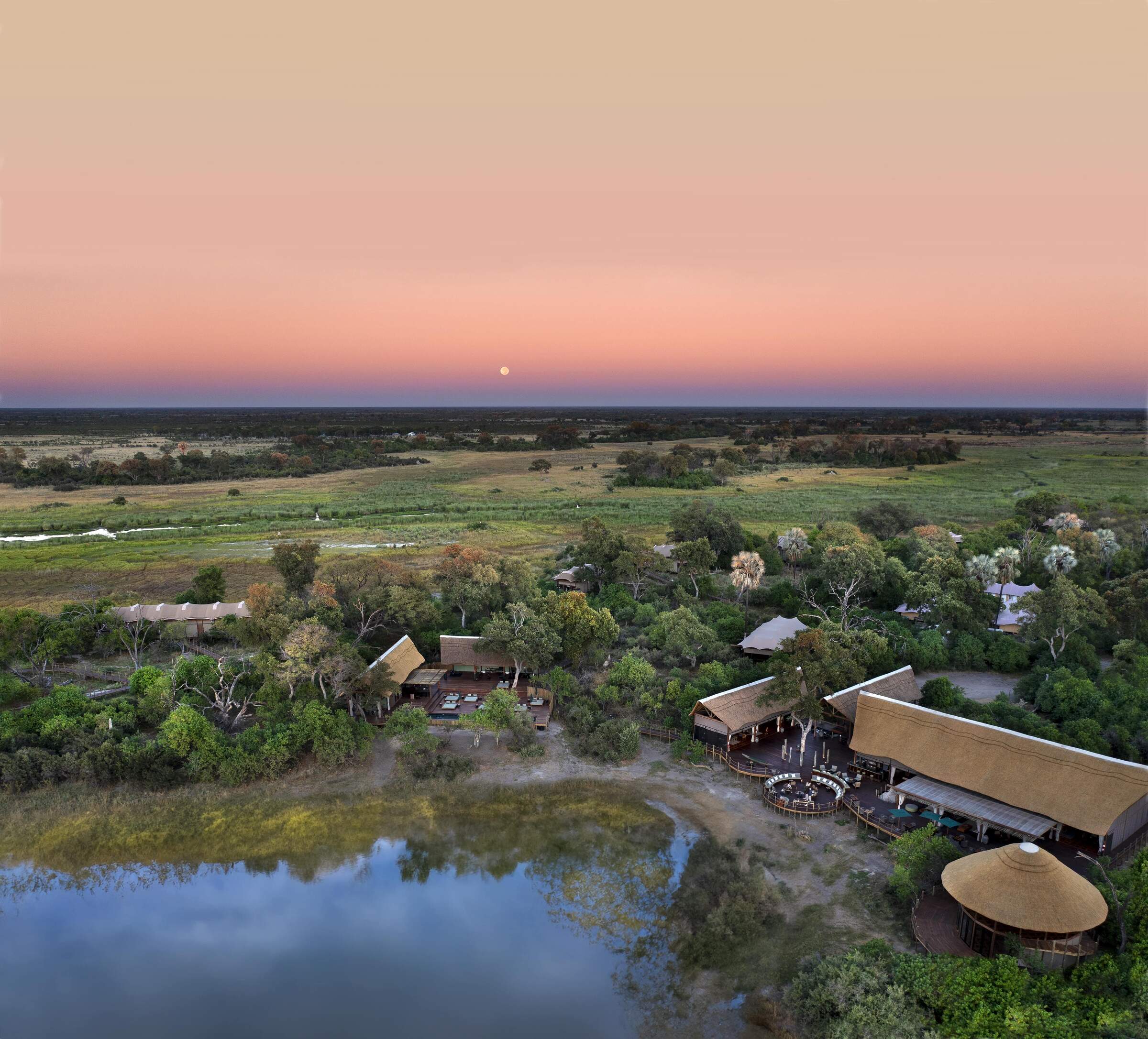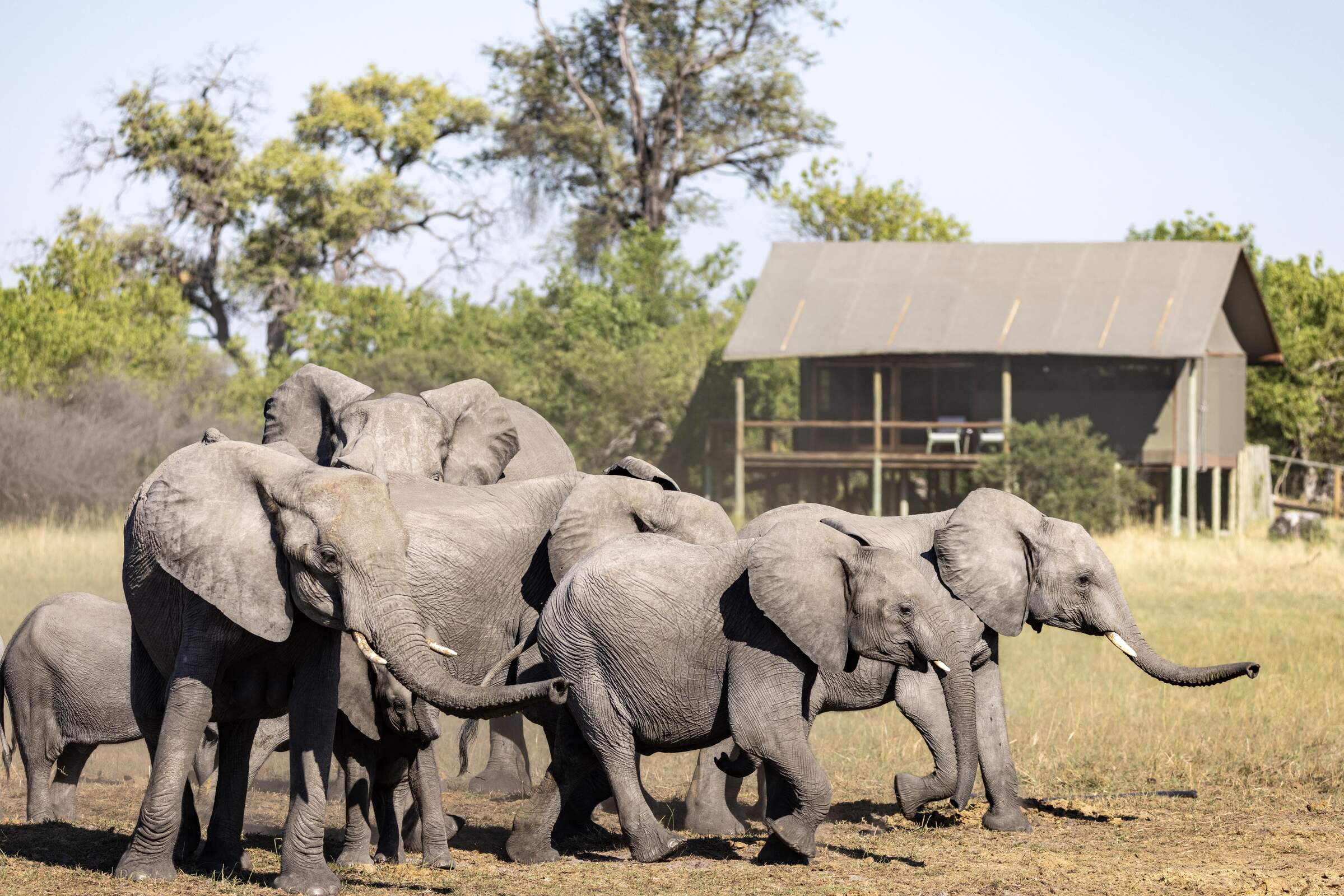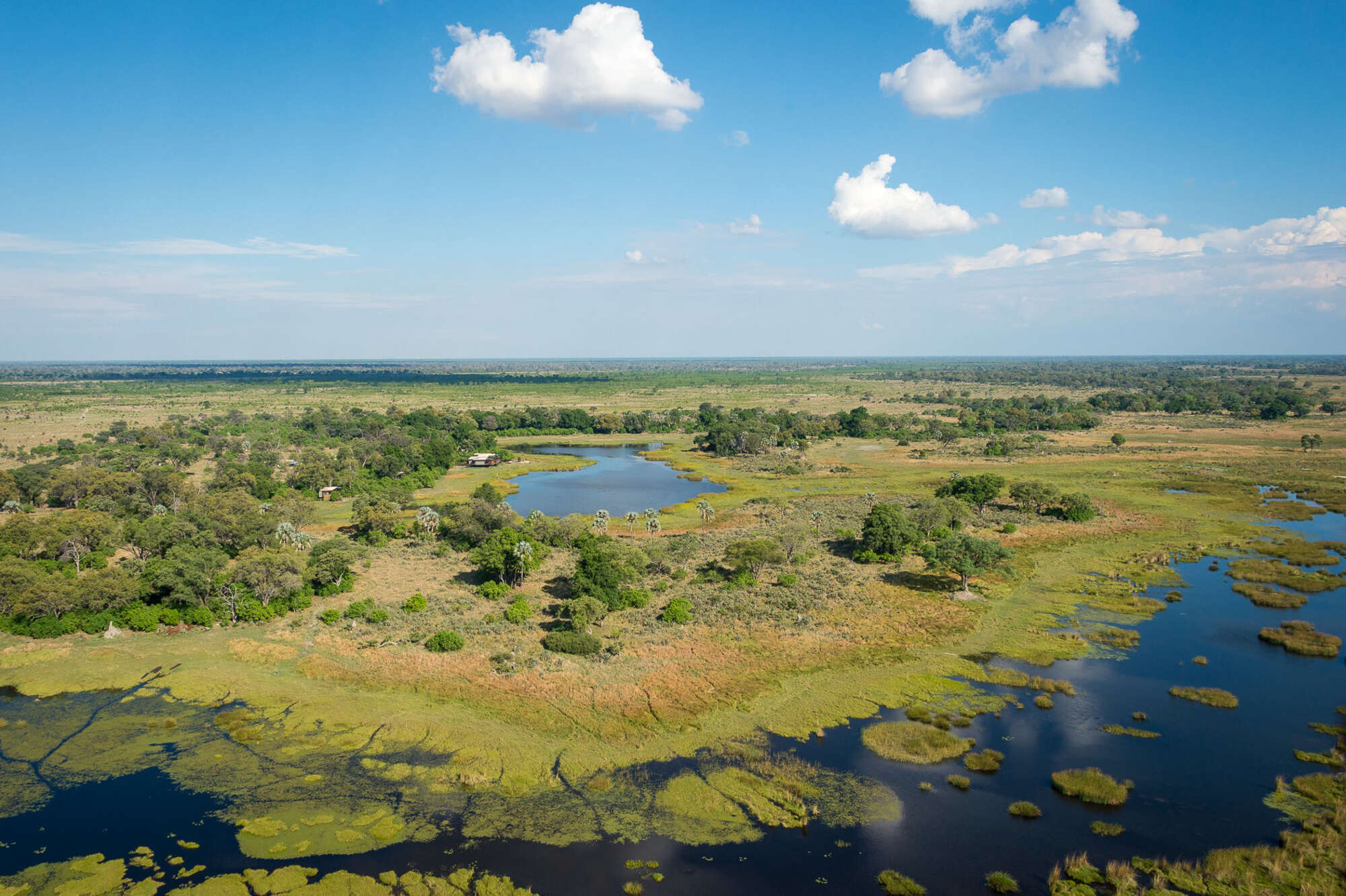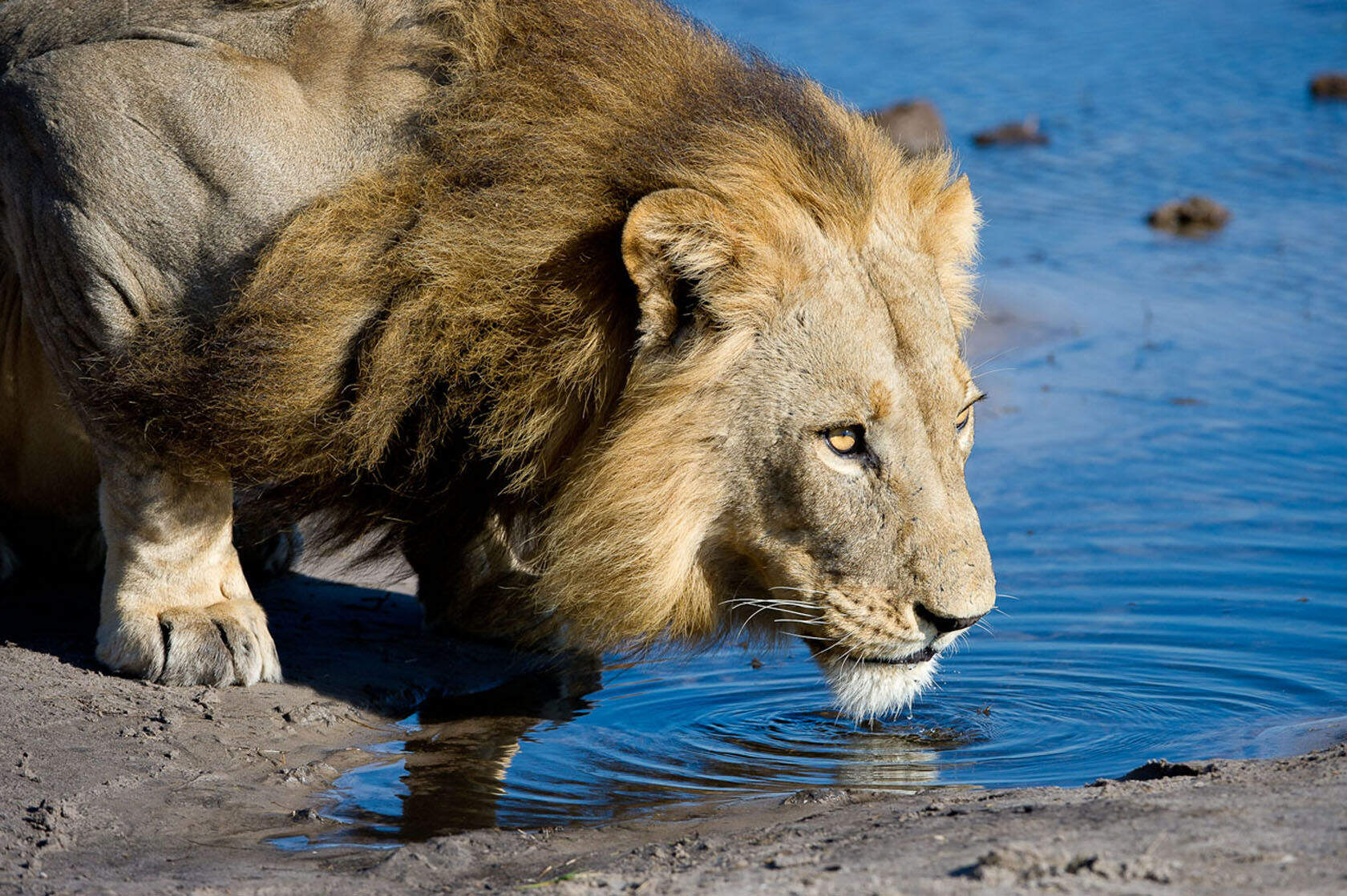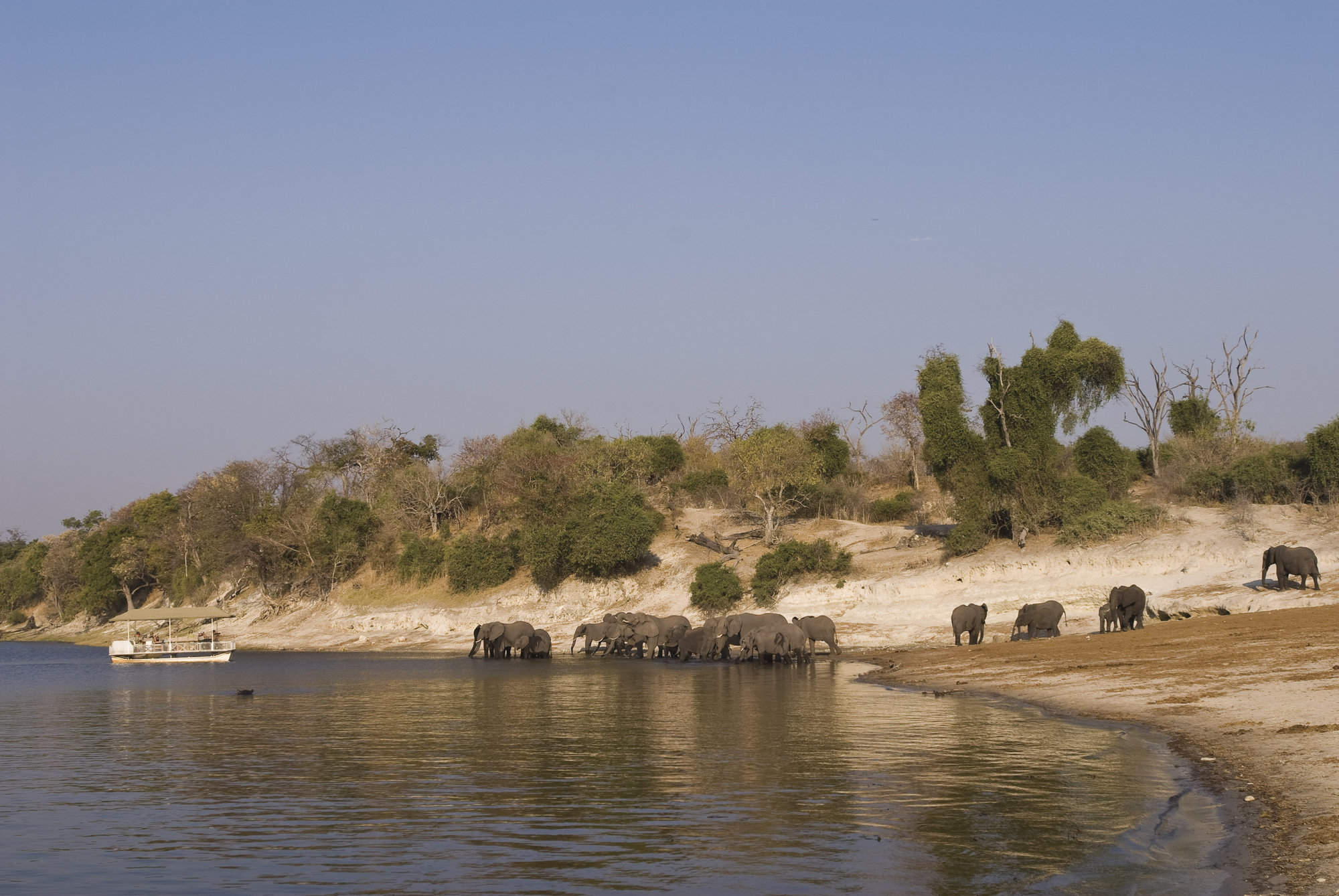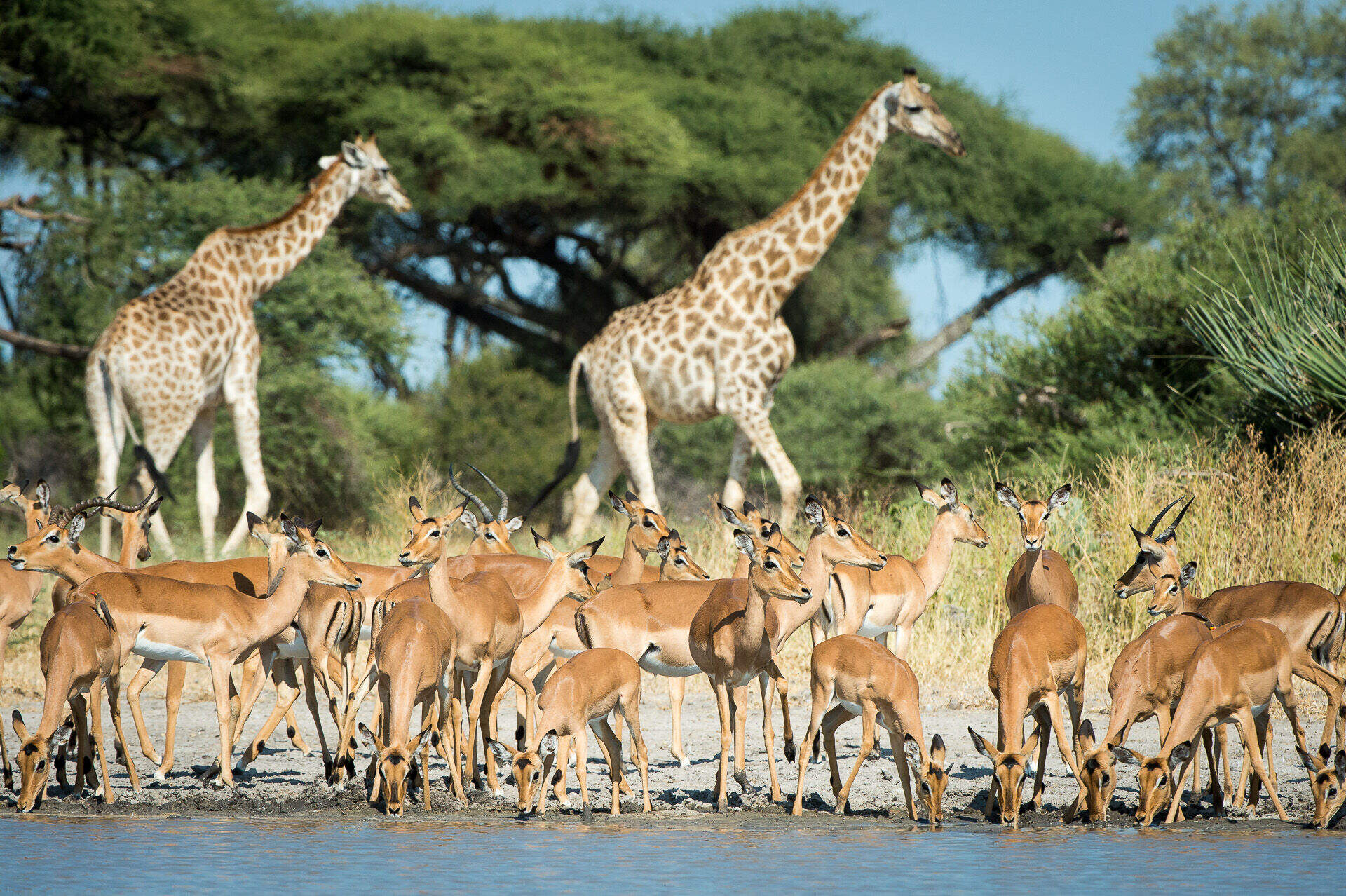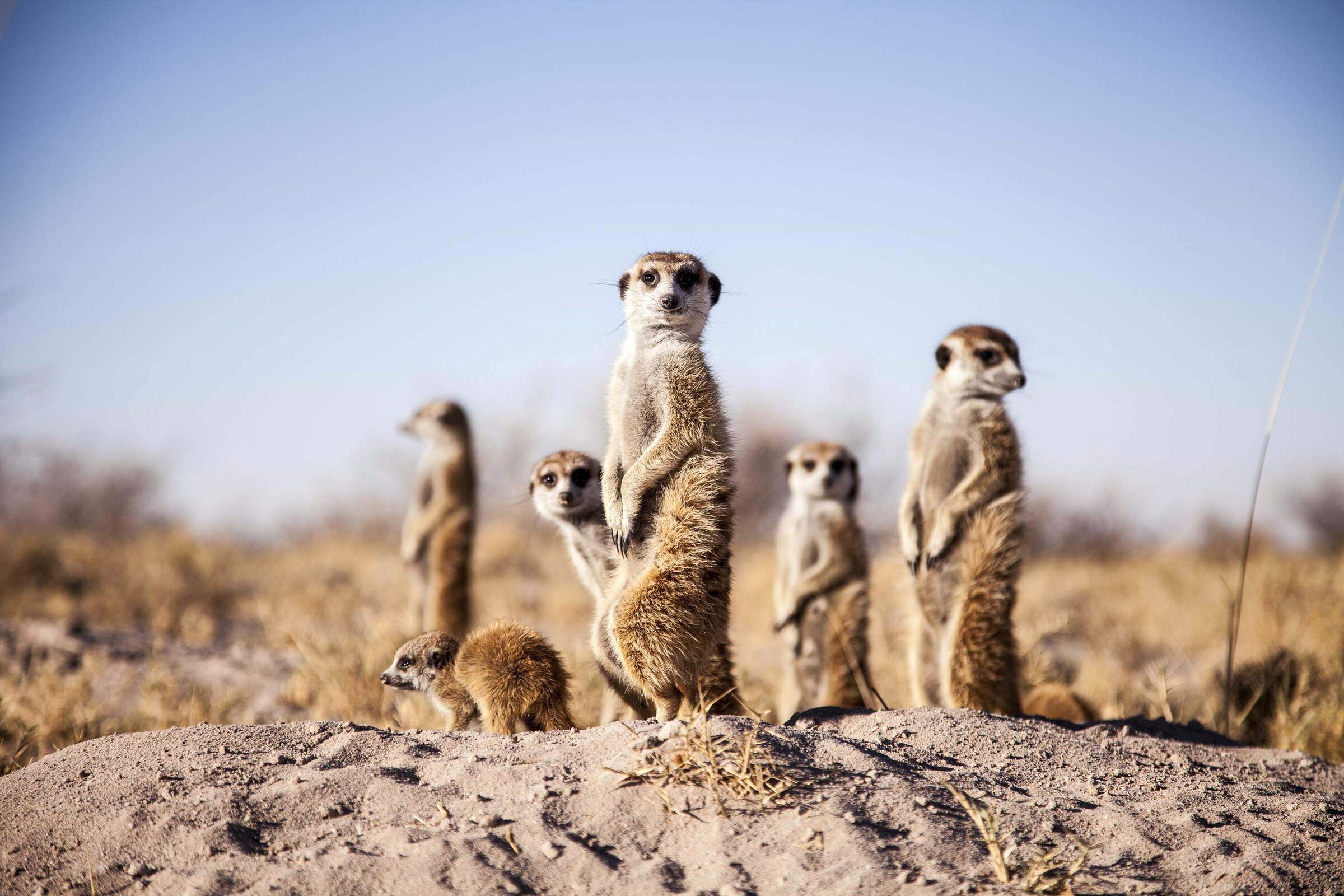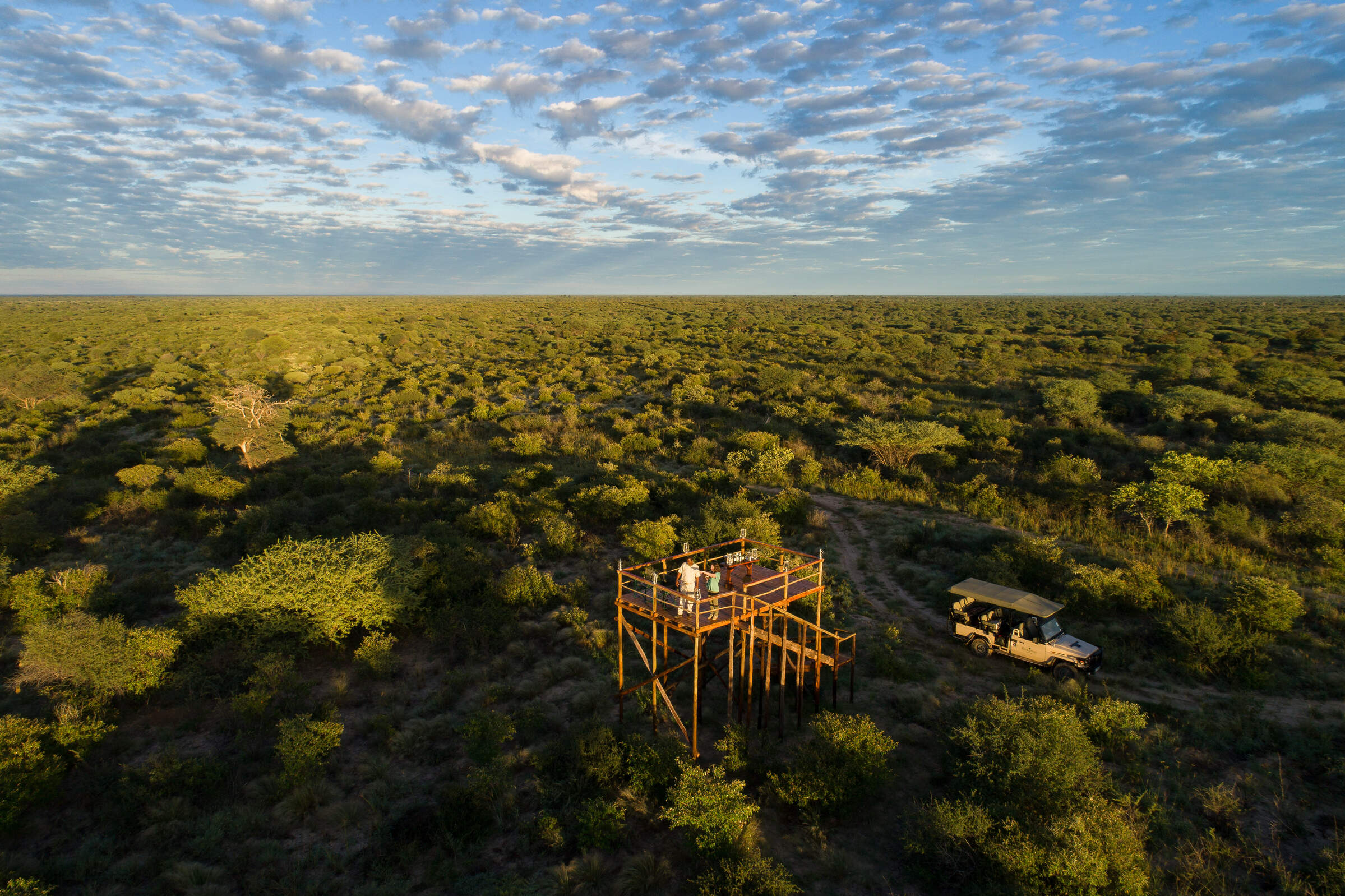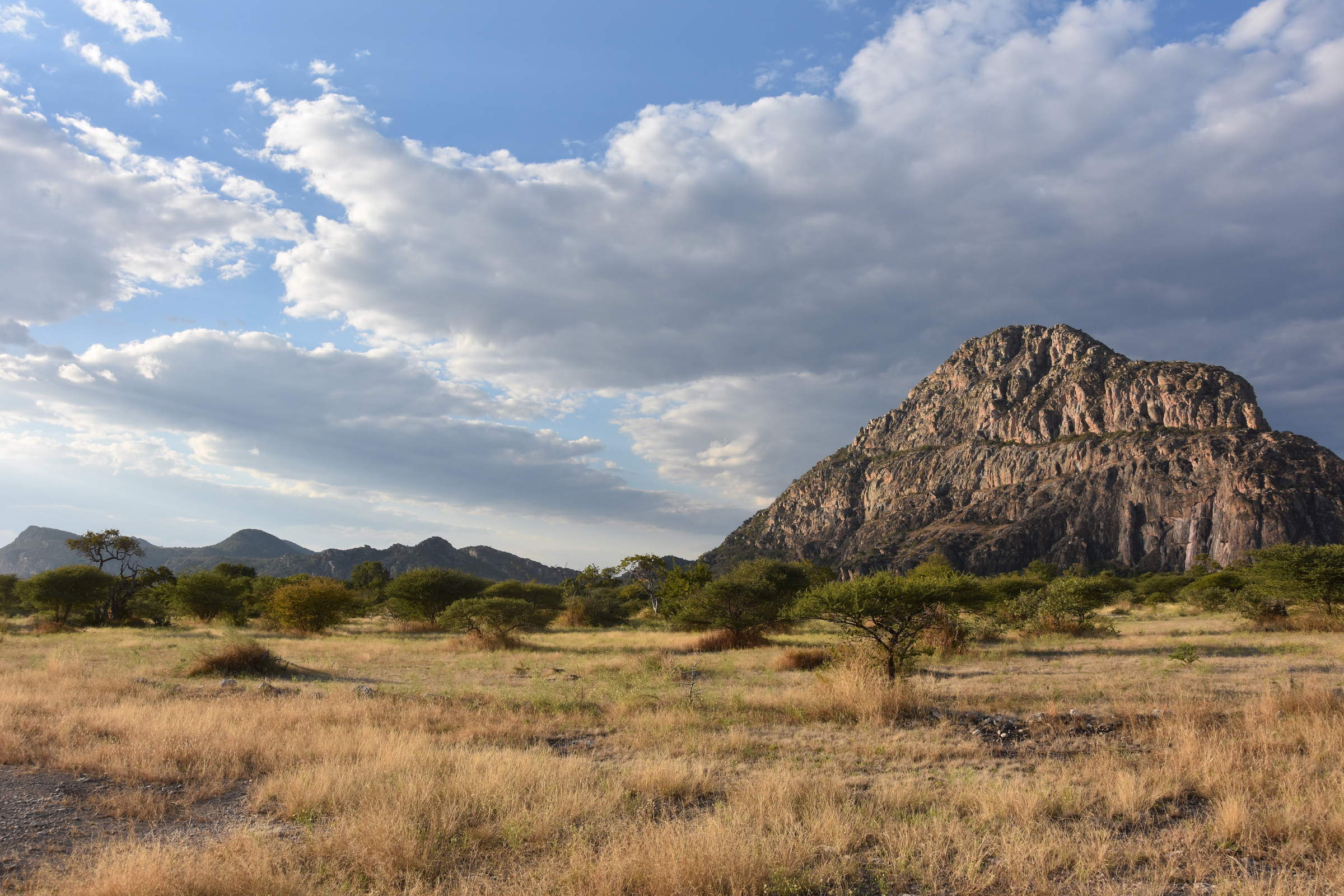Jacana Camp: Our full report
Jacana Camp is a fairly small camp built on a little island amidst the large open floodplains of the Jao Flats.
The Okavango's levels fluctuate throughout the year but when the water levels are high during the peak of the floods, Jacana is usually completely surrounded by water, giving it a true island feeling. This also means that water-based activities can generally be offered year-round. When water levels permit, occasional dry-land 4WD trips to Hunda Island, for game viewing, are also an option.Jacana Camp lies within the Jao Reserve, and its small palm-fringed island is typical of the Jao Flats, which is one of the Okavango Delta's largest areas of floodplains. The scenery is very beautiful, and corresponds to what many people expect of the Okavango Delta before they see it for the first time: it's very lush and tropical. We also feel that the camp itself has a particularly relaxed, laid-back air with friendly and efficient staff – perhaps aided by the watery surroundings and the naturally slow pace of mokoro activities.
Jacana Camp's main area is a double-storey building which faces east. So while eating muffins and toast before our morning activity, we had a prime spot to watch the sunrise over the water (and admire our elephant visitor who happily munched his own breakfast at the end of the deck).
Downstairs on the lower deck is the main lounge area with some comfortable sofas, a tea-and-coffee station, and polished wooden bar. Tucked away on a small landing about halfway up the stairs you’ll find a small library and sofa. And the upper deck houses the open-sided dining area, which offers even better views across the floodplains. A wooden walkway leads from the eating area to the fun 'loo with a view', which must be experienced during your stay!
Nestled off to the side of the main building is a small plunge pool with sunloungers and umbrellas. Behind the bar is an area with a central firepit, which is lit most evenings and is a popular spot for pre- and post- dinner drinks and animated discussions. There is also a small curio shop.
Accessed along sandy paths, the five fairly spacious tented chalets at Jacana Camp are set up on wooden decks, each with a small balcony overlooking the scenic floodplains. Sliding doors open into the bedroom area, where a large bed beneath a walk-in mosquito net and cooling ceiling fan makes the most of the view. Bed linen and cushions are in muted tones. A couple of comfortable chairs invite relaxation, and a writing desk plays host to camp information and a few magazines. The practical stuff is tucked away at the back: shelves and hanging space, a tea- and coffee-making station, an electronic safe, and an assortment of international adaptors.
Another sliding door at the back leads to the open-plan, en-suite bathroom. Ceramic double basins are set into a wooden surface beneath an unusual metal-framed mirror. Separated to some extent by head-height wooden poles are the indoor shower and flushing loo. But for stunning views, head for the outside shower, leading off the veranda.
While all Jacana’s chalets are almost identical in style, two are geared to particular guests. Those with children will welcome the family chalet, which has two separate bedrooms joined by a single bathroom. And in the honeymoon suite, set on the other side of the main area to the rest of the chalets, greater privacy allows for an outside bath in an opulent copper roll-top tub.
We're always impressed by the rich birdlife that can be viewed from an armchair on our balcony or the lounge at Jacana, and of course during activities. Species we've spotted include wattled crane, slaty egret, saddle-billed stork and rufus-bellied heron. Birding enthusiasts should keep an eye out for Pel's fishing owl, which are known to nest on a nearby island. On our last trip in September 2017 we only had time to pop in to look around the camp, but on a previous visit we were lucky enough to spot two of these riverine specialists in the same tree.
On activities at Jacana, we've found the guiding to be of a generally high standard. On one visit, water levels were high and we chose to go out in the motorboat for the morning and try our hand at fishing (much to the delight of our guide!). It was incredibly relaxing and we spent a wonderful few hours birding and learning to fish. Jacana also offers mokoro trips.
Daylight game drives are usually offered in the Jao area when the waters have receded, generally from around September until about April. This said, the transfer is long so Jacana should be considered a primarily a water-based camp. Despite the occasional visit from hippo and elephant and frequent red lechwe sightings don't come here expecting abundant big game. Rather, enjoy the opportunity to immerse yourself in a true water-based Delta experience.
Note that even when game drives are offered, night drives are not generally an option because it's usually necessary to boat into camp, and they won't run the boats at night for safety reasons.
Our view
This authentic Delta camp is a firm favourite of our team. It stands out for its stunning location, excellent birdlife and informal, tropical air. Jacana Camp makes a particularly good place to end a safari, or when used in the middle of a trip, as a welcome break from the 'serious' business of big-game watching. Come for a classic water-based Delta experience, and we hope you enjoy this camp as much as we do.
Geographics
- Location
- Okavango Delta Safari Reserves, Botswana
- Ideal length of stay
- Two nights are fine here, because of the focus on water-based activities. However, if Jacana is the only water-based camp you are visiting or you'd simply prefer to slow the pace of your safari a little, then you may wish to stay a night longer.
- Directions
- Access to camp is usually via a light-aircraft transfer to Jao airstrip. Transfers to Jacana Camp from there are usually by boat, but may be by road (or a combination of both) if the flood waters have receded sufficiently. For the past two years the latter has not been an option due to high water levels.
- Accessible by
- Fly-and-Transfer
Food & drink
- Usual board basis
- Full Board & Activities
- Food quality
- Meals at Jacana Camp are served buffet-style. In the past, the food has sometimes been disappointing, but we have really enjoyed it the last few times we have stayed here (though we didn’t have time for a meal on our most recent visit, in September 2017).
A light breakfast of cereal, fruit, toast, muffins, tea and coffee is served on the deck before departing on your early morning activity. .
On your return, brunch is a good selection of dishes. On one occasion we were offered chicken kebabs, mustard mashed potato, artichoke and asparagus salad, a green salad and freshly baked bread, with sausages and eggs cooked to order. There was also a fruit platter and a cheeseboard, just in case you could squeeze in more after the main offerings!
For afternoon tea on different visits, we’ve had savouries of tuna samosas, pizza slices and mini quiches, balanced by a moist orange cake or banoffee pie. Several iced drinks – coffee and lemonade, plus tea and coffee, usually accompany this.
On our last stay, we had a really tasty dinner of corn chowder soup, breaded chicken escalope with patty pan (a type of squash) and green beans served with a mushroom sauce and a green salad, rounded off by orange pancakes. - Dining style
- Group Meals
- Dining locations
- Indoor and Outdoor Dining
- Further dining info, including room service
- There is no room service.
- Drinks included
- Bottled water, soft drinks, local beers and spirits and a limited selection of (usually) South African red and white wines are included. Champagne and imported wines and spirits will cost extra and may need to be requested in advance.
Special interests
- Birdwatching
- Jacana Camp would be a key part of a birding trip to Botswana, with species including Pel's fishing owl, wattled crane, saddle-billed stork, African darter, reed cormorant, slaty egret, and goliath and rufous-bellied herons.
- See ideas for Birdwatching in Botswana
Children
- Attitude towards children
- Children over the age of 12 years are welcome at Jacana.
The camp may accept children between the ages of 6 and 12 years old, but private activities must be booked and these will be at an extra cost.
Children younger than six may be accepted by special arrangement, and then only if the entire camp is reserved for exclusive use. - Property’s age restrictions
- Minimum age normally six years. Note that there is a 13+ age limit on mokoro activities.
- Special activities & services
- There are no special activities or services for children.
- Equipment
- No special equipment is available, but there is a family chalet with two bedrooms linked by one shared bathroom.
- Generally recommended for children
- We think this camp would suit older children with a keen interest in the natural world, possibly even fishing (note that fishing is not allowed during the breeding season of January–February). Game drives can be hard going, when they are offered, so we strongly recommend booking private activities for greater flexibility.
- Notes
- Wildlife, including hippos and bull elephants, wanders through Jacana Camp on a surprisingly regular basis. The balconies are on stilts and would not be suitable for small children. The pool is unfenced and the camp is often surrounded completely by water. Children must be under the constant supervision of their parents.
Our travellers’ wildlife sightings from Jacana Camp
Since mid-2018, many of our travellers who stayed at Jacana Camp have kindly recorded their wildlife sightings and shared them with us. The results are below. Click an animal to see more, and here to see more on our methodology.

100% success

100% success

67% success

67% success

67% success

67% success

33% success

33% success

33% success

33% success

0% success

0% success

0% success

0% success

0% success

0% success

0% success

0% success
Communications
- Power supply notes
- Batteries provide power when the generator is off.
- Communications
- There is no cellphone reception, no direct phone or fax and no email. Communication is maintained with the head office in Maun via radio.
- TV & radio
- There is no TV or radio.
- Water supply
- Other
- Water supply notes
- The water is pumped from the Delta and treated by reverse osmosis, as such it is safe to washing and human consumption.
Sustainability

Educating children in the wilderness
In an area of the Okavango Delta highly affected by human-wildlife conflicts, the team at Jacana camp is committed to bridge the gap between locals and wildlife conservation through teaching future generations about the benefits of protecting natural heritage. Over the past decade, the camp has repeatedly hosted 3-day eco-camps for local children– as part of the ‘Children in the Wilderness Botswana’ initiative – which are aimed to provide them with adequate skills and knowledge concerning environment and wildlife protection, so that they can become the future leaders of the Okavango Reserve.
The camp has a similar programme for their little guests called ‘Bush Buddy Programme’ – a great opportunity for families traveling with children to engage in aspiring activities, learning about the local wildlife and the challenges encountered in protecting it.
Additionally, Jacana has partnered up with ‘Pack for a Purpose’ and encourages guests to save some space in their luggage for packing some donations which go directly to the primary school in Tubu village or other nearby communities. Among the necessities required, guests could bring school supplies, reference or reading material, toys, clothes or toiletries/first-aid kits.
See more great sustainability projects in Botswana
Health & safety
- Malarial protection recommended
- Yes
- Medical care
- The nearest doctor is in Maun. All management and guides are first-aid trained and there is a nurse on call (via radio) 24 hours a day. Medical evacuation is available in case of emergencies, but please note that it is only possible to fly out of camp during daylight hours as the bush airstrips do not have any lighting at night.
- Dangerous animals
- High Risk
- Security measures
- Guests are escorted to/from their chalets after dark as dangerous wildlife wanders through the camp. A thorough safety briefing is given on arrival. 'Fog horns' are provided in the chalets to attract attention in case of emergency.
- Fire safety
- There are fire extinguishers outside all the chalets and in the main area.
Activities
4WD Safari
Birdwatching
Boat trip
Fishing
Guided walking safari
Helicopter
Mokoro
Night drive
Private activities
Extras
- Disabled access
- Not Possible
- Laundry facilities
- A laundry service is included at Jacana. Laundry is collected in the morning and usually returned the same day, weather permitting. For cultural reasons, the staff do not wash underwear. Detergent is provided in each chalet for guests who wish to do a little hand washing.
- Money
- No exchange facilities are offered. There are safes in all the chalets.
- Accepted payment on location
- Mastercard and Visa credit cards are accepted; Diners and Amex are not. Cash payments may be made in the form of South African rand, GB sterling, US dollars, euros and Botswana pula.
Other lodges in Okavango Delta Safari Reserves
Alternative places to stay in this same area.

